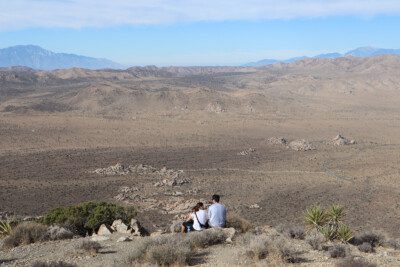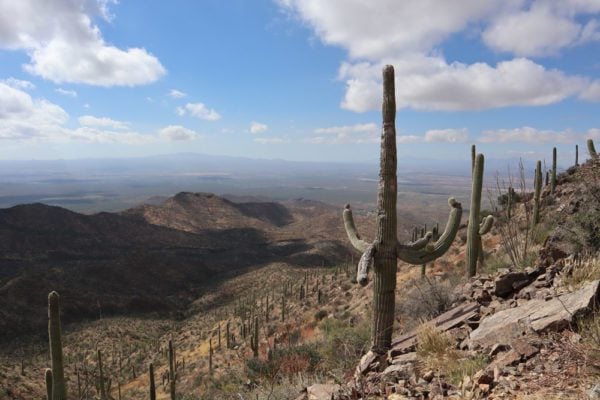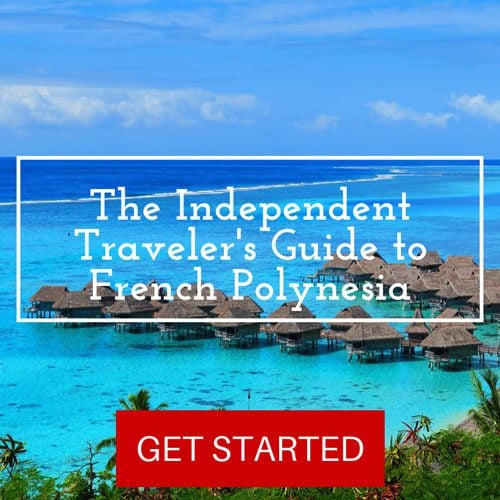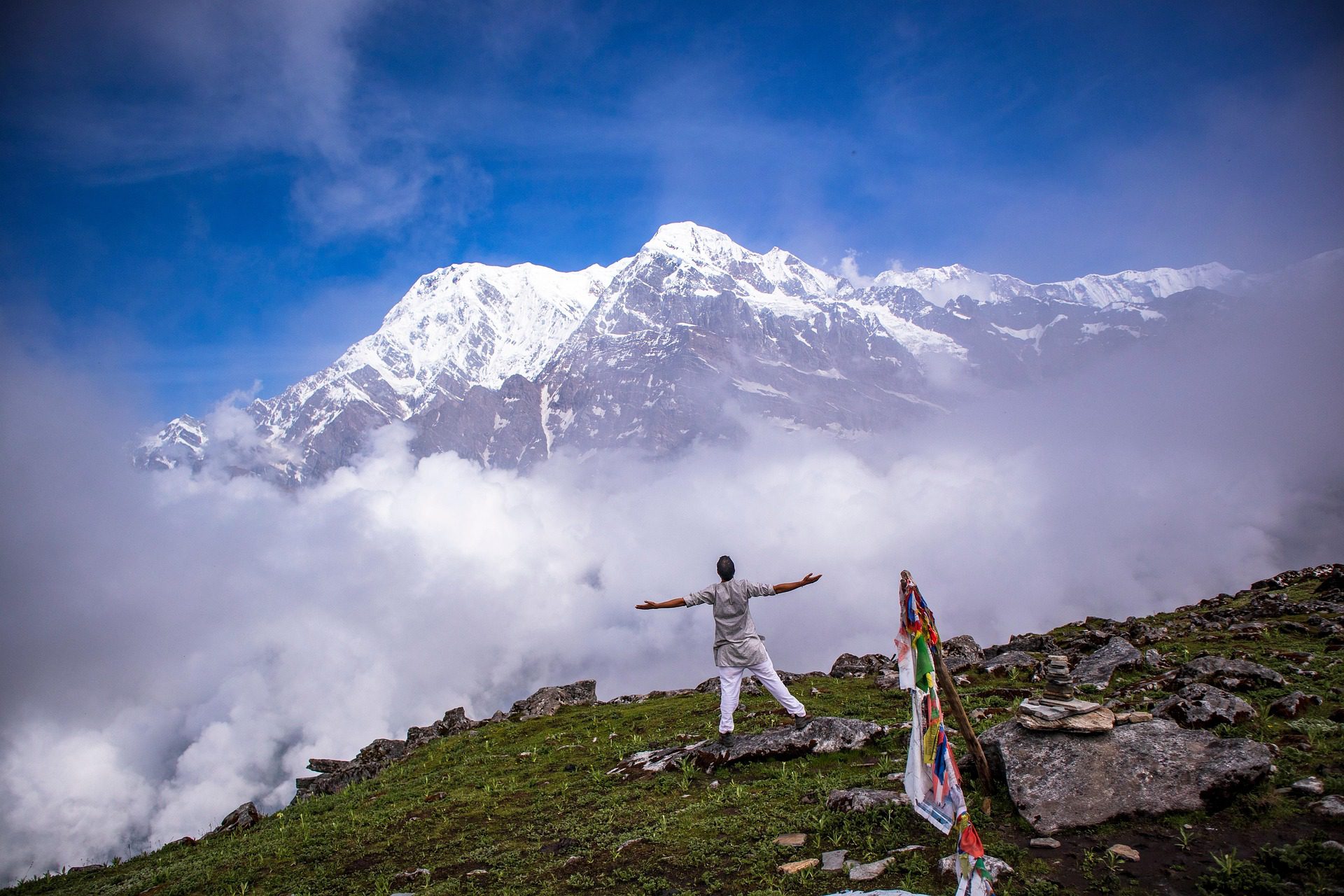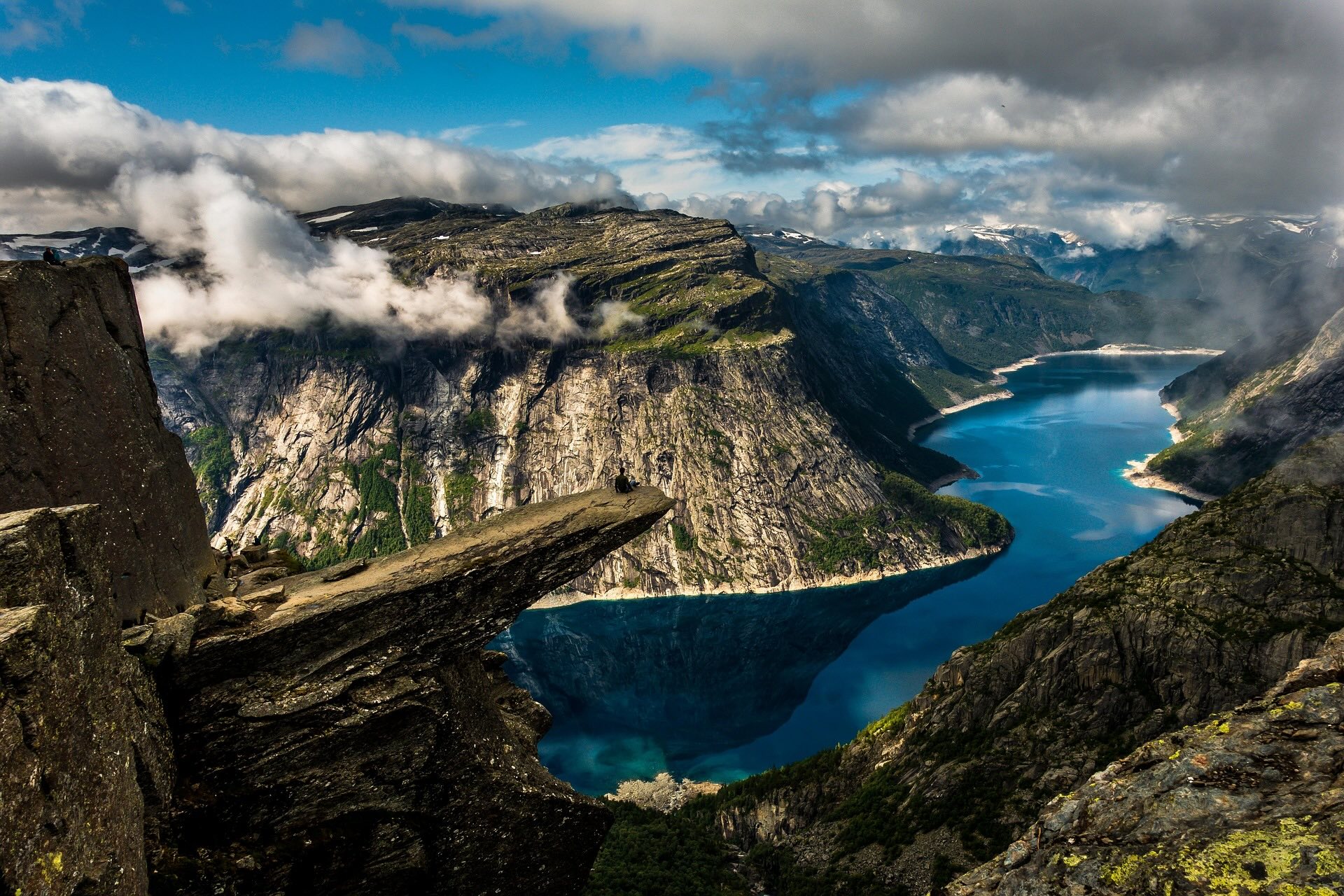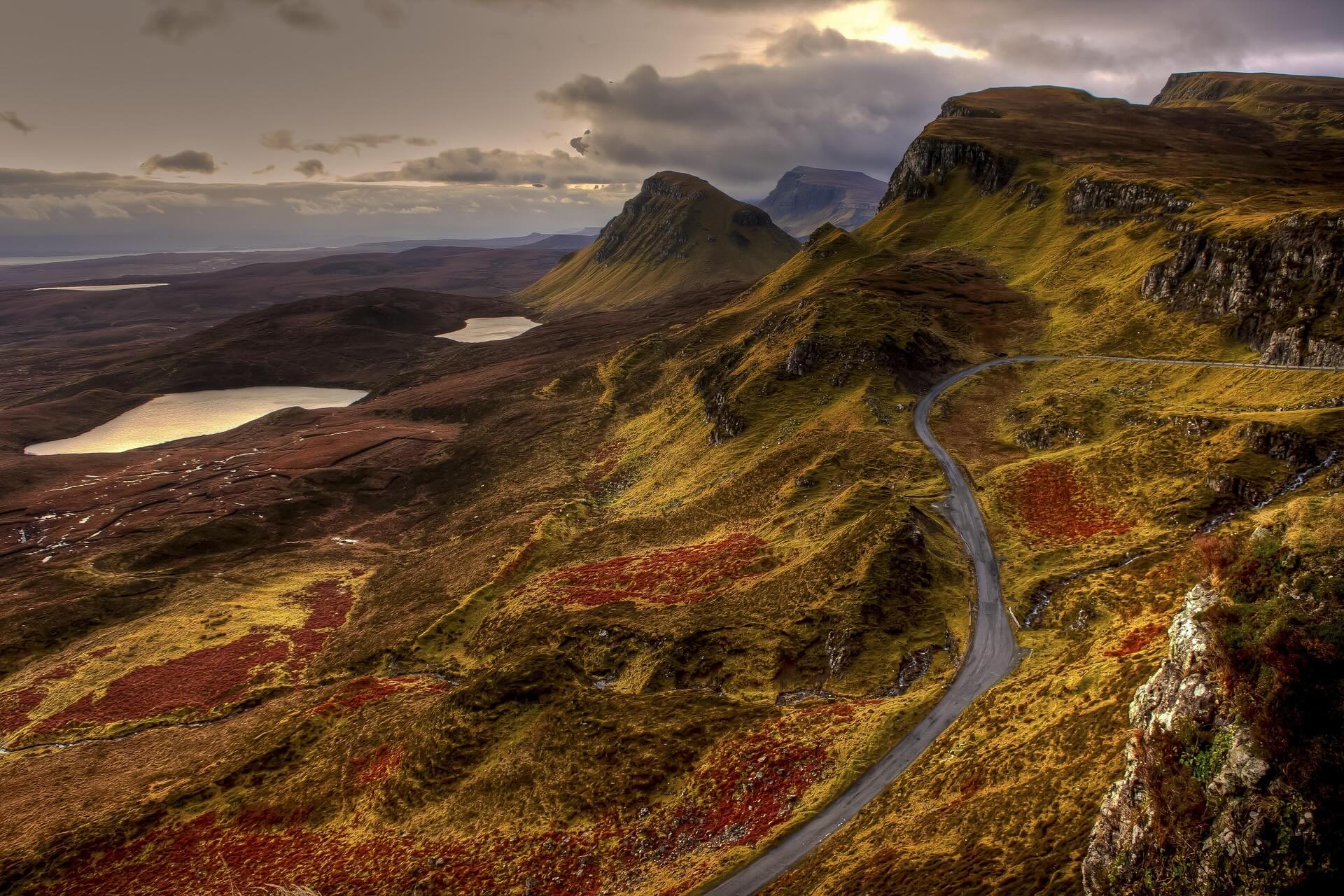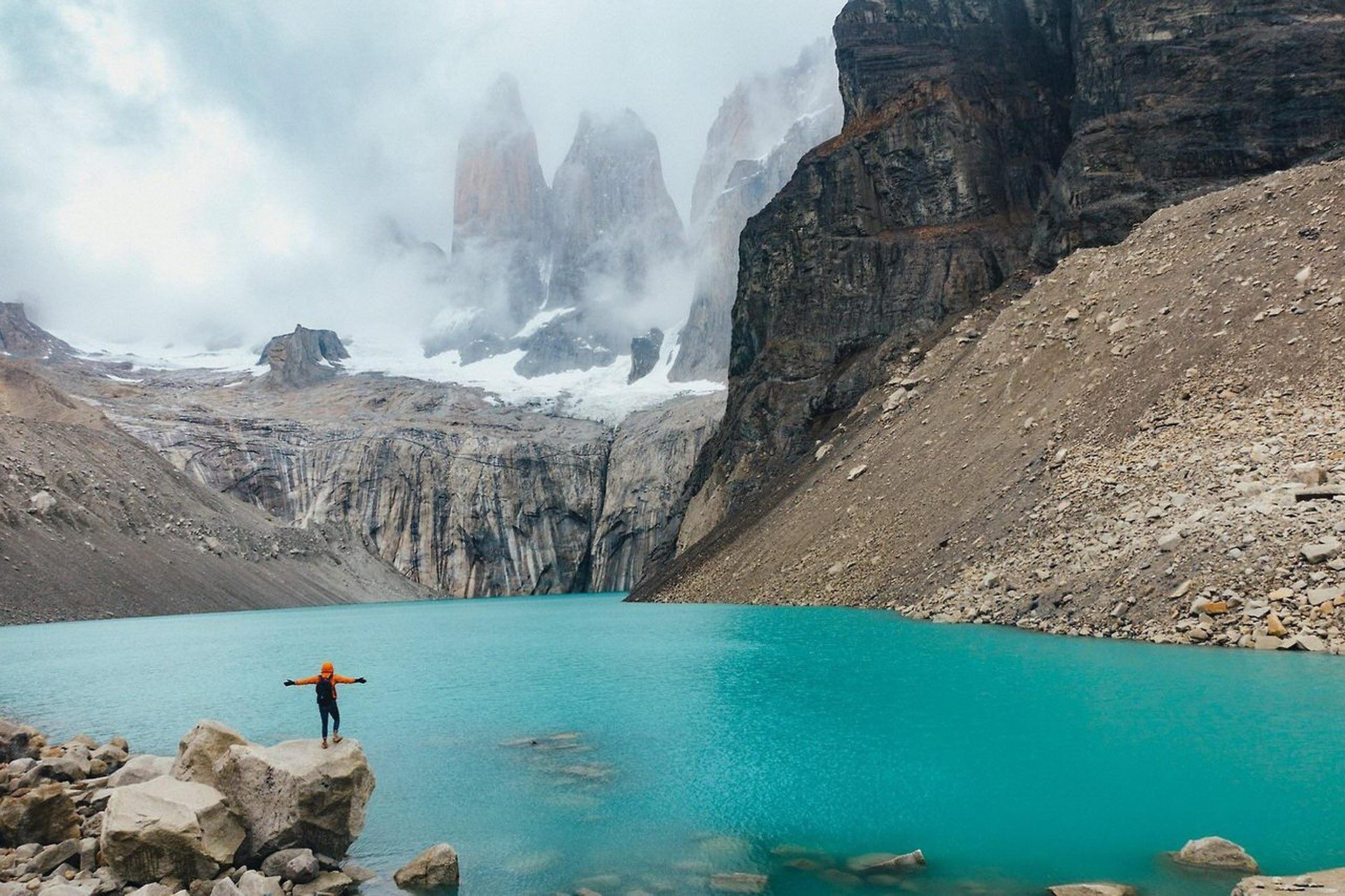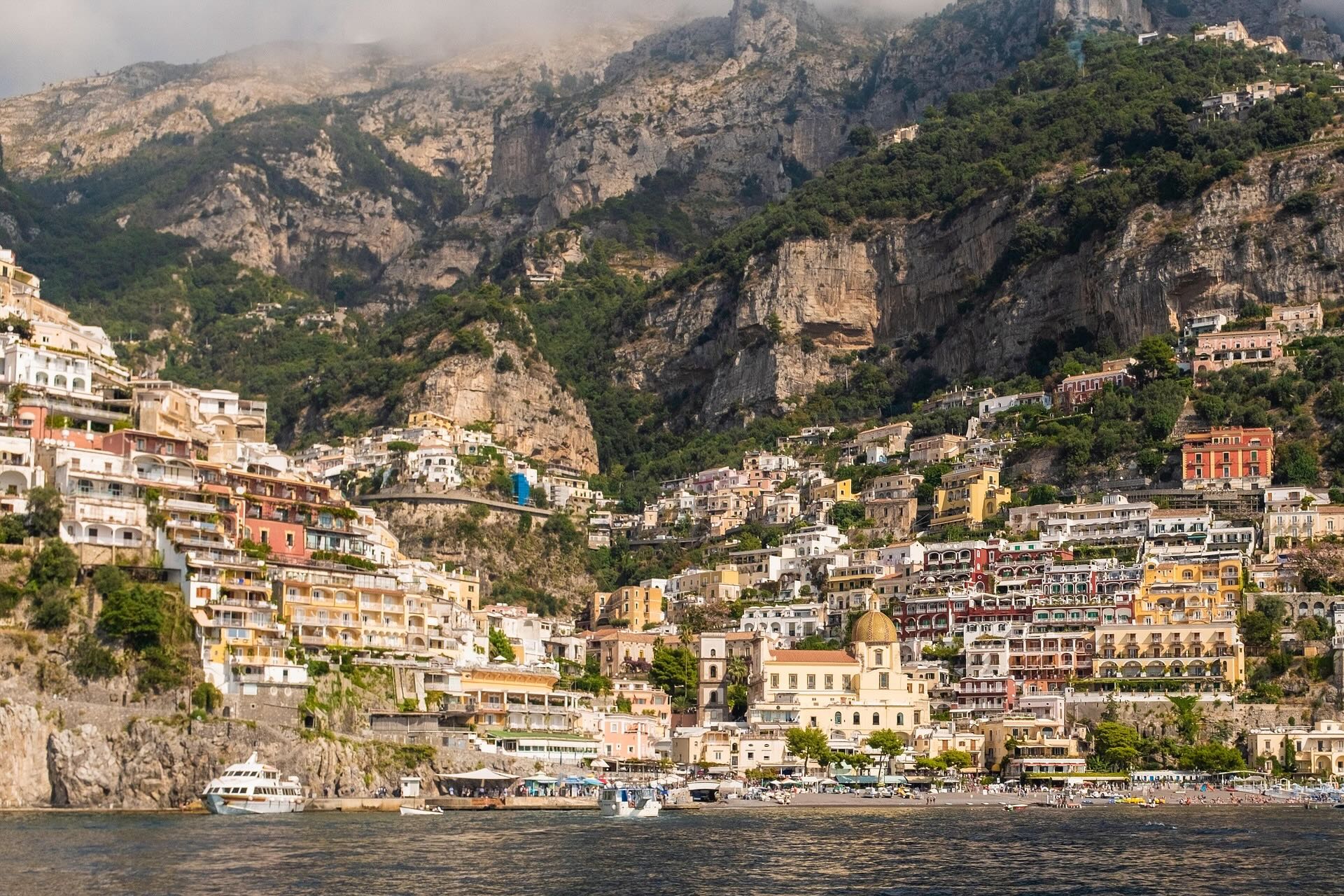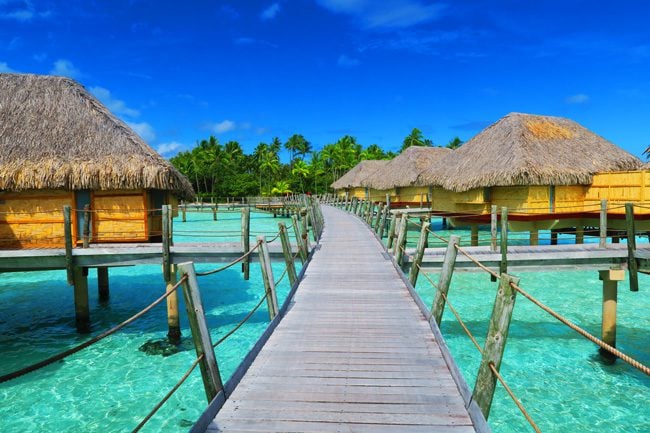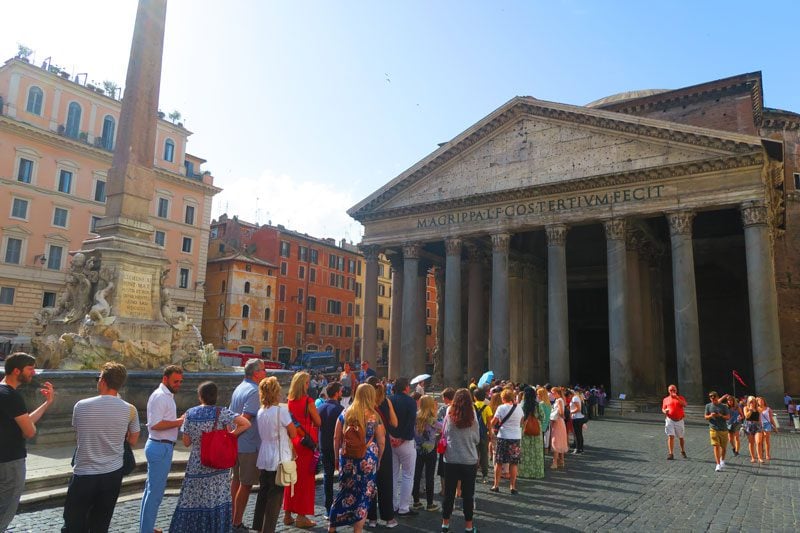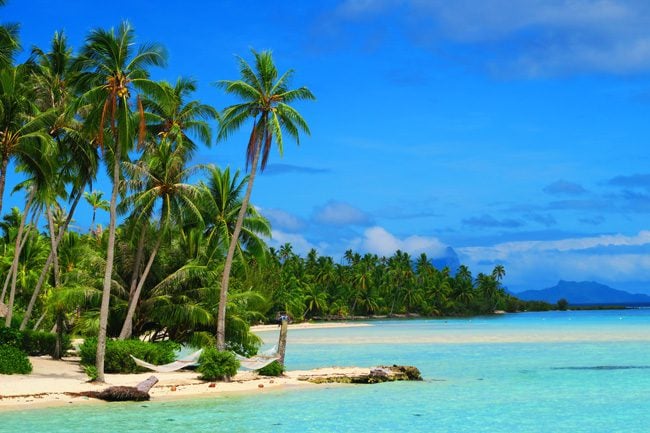Raiatea Travel Guide
Things To Do & Places To See In Raiatea
This section of the Raiatea travel guide highlights the main points of interest and special activities to see and do during your visit to the sacred island.
Uturoa
The only town in Raiatea is the second largest in French Polynesia after much bigger Papeete. Tucked between the lagoon and Mount Tapioi, Uturoa offers all the comforts of a small town and is somewhat charming for a quick stroll. During the day, its main streets are busy with locals running errands, buying a small sandwich in one of the snacks, or doing some boutique shopping. During the night, roulottes set up shop in the center of town, cooking simple and affordable Tahitian and Chinese dishes.
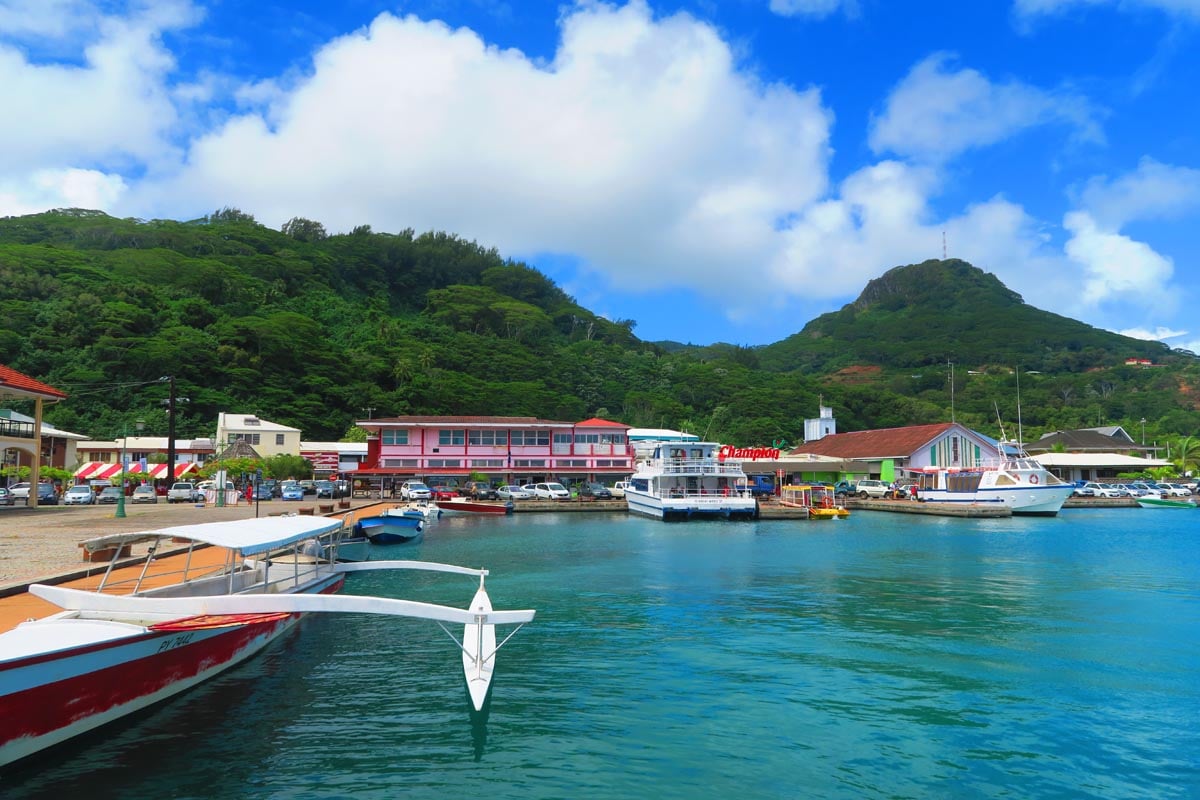
You’ll find a bunch of proper supermarkets in the center of town, one of which is even open on Sundays. There’s a covered market in the center of town that’s open on weekdays and Saturday mornings. The ground floor has fruit & vegetable stalls, while the top floor has a cafe and a bunch of artisan stalls selling local souvenirs (vanilla, necklaces oils, wood carvings, etc).
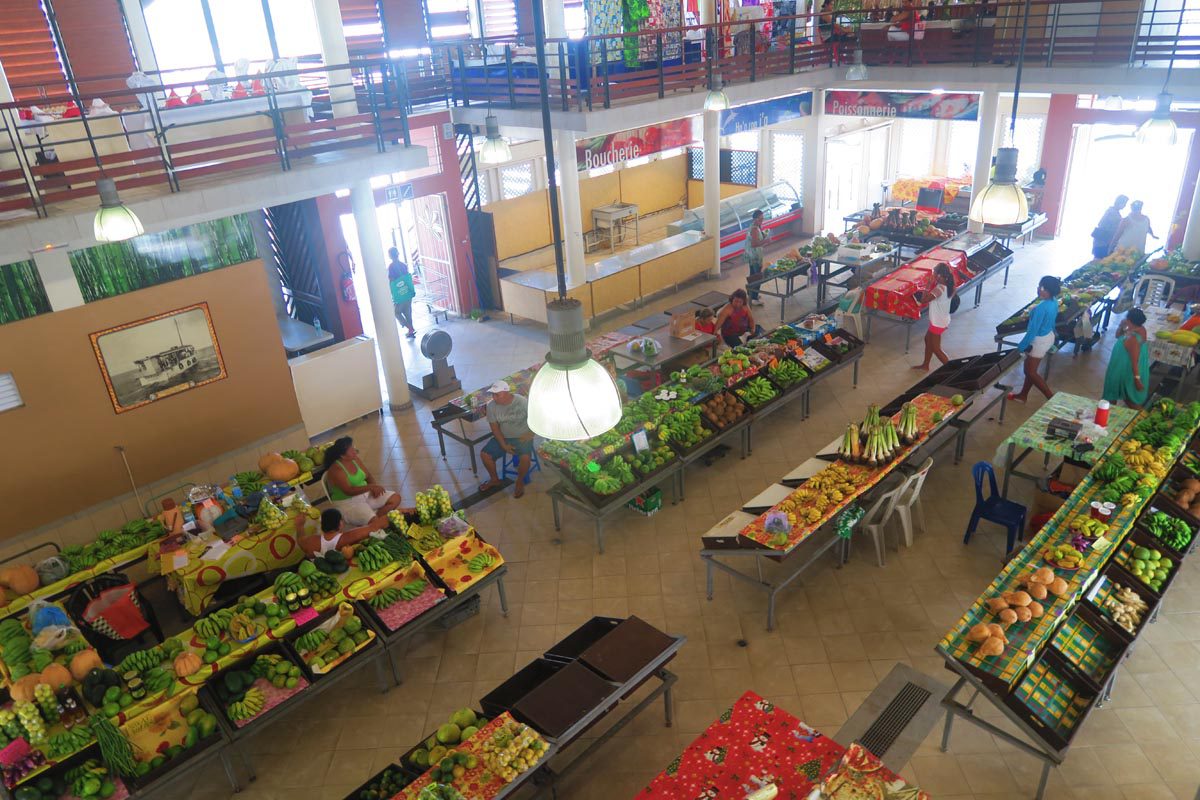
Mount Tapioi Hike
The summit of Mount Tapioi (294m) offers sweeping views of Raiatea’s coastline and neighboring Tahaa. It’s one of the few trails in Raiatea that you can hike on your own. As of 2023, the trail is closed. Owners of the land restrict trail access following the death of a hiker. In any case, the trail was always closed on Sundays.
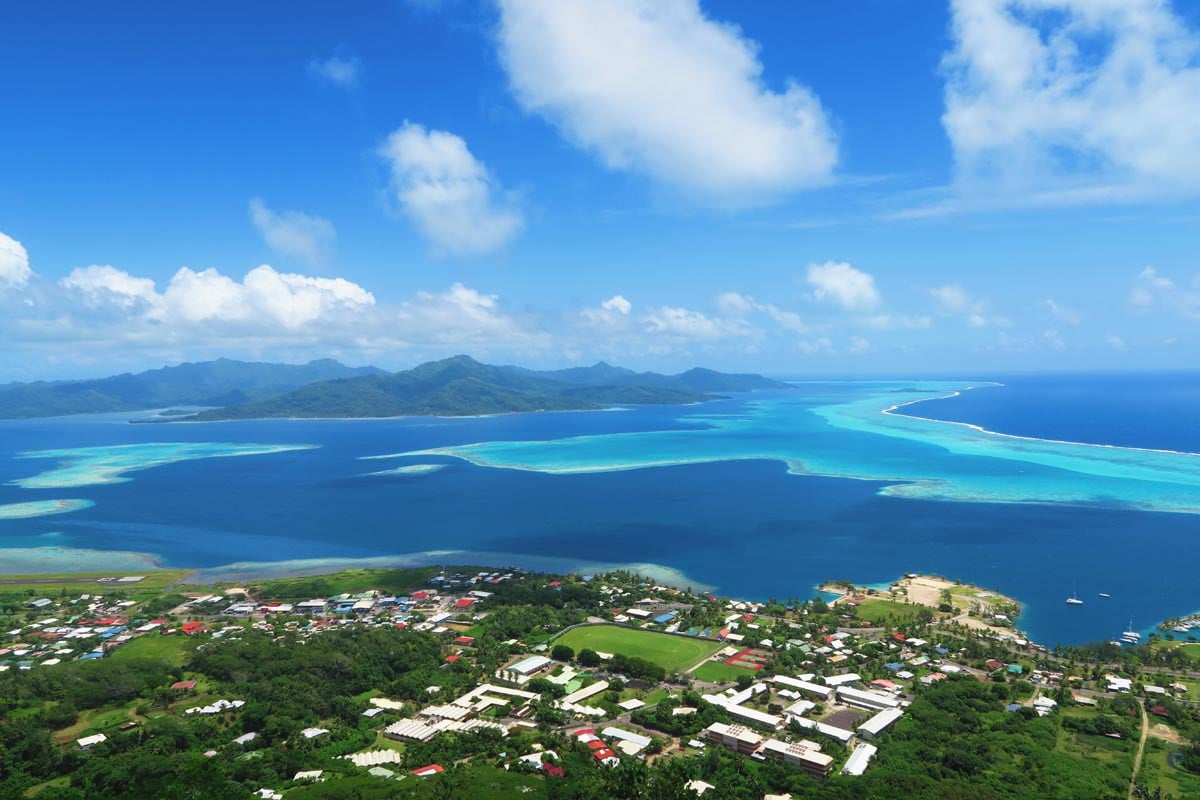
Road Trip Around Raiatea
There’s no better way to experience the magic of Raiatea than by hitting the road and circling the island’s 100 km coastline. Raiatea is beautifully wild, reminiscent of Moorea, and with hardly anyone around once you leave Uturoa behind. You can also join guided 4X4 or quad bike tours of the island. While they may not entirely circle the island, they’ll naturally include visits to the top sites, such as Taputapuatea and the botanical garden.
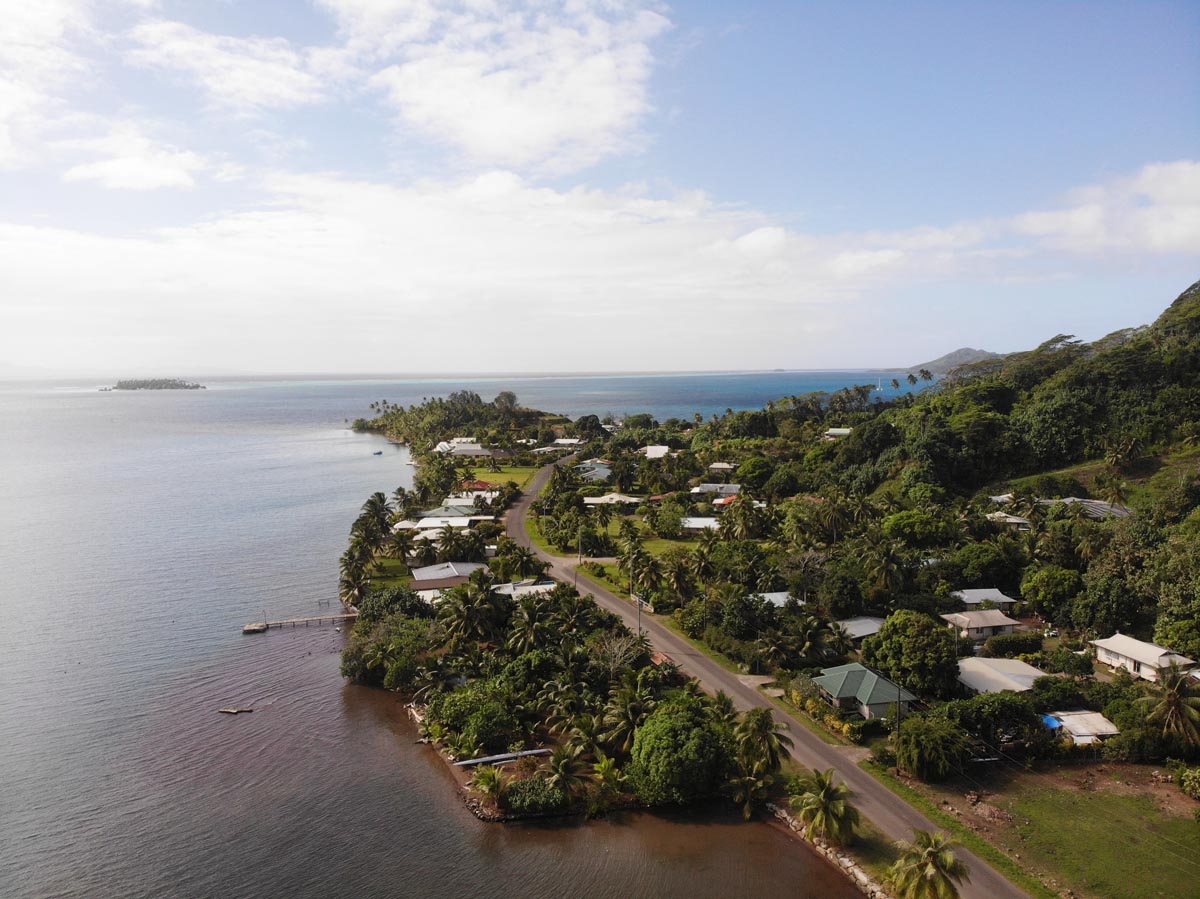
Uturoa to Avera
South of Uturoa, the coastal road passes several villages, and there isn’t a real reason to stop, apart from a visit to one of the peal farms such as Vairua Perles. If you have not yet visited a pearl farm, this is an excellent opportunity to learn about black pearl production.
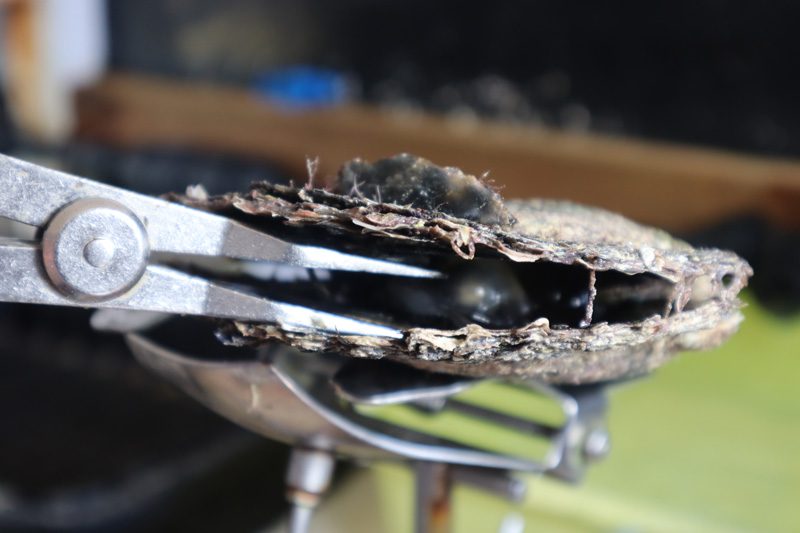
Faaroa Bay
Deep Faaroa Bay marks the start of the Raiatea’s sleepy section. You’ve unofficially escaped Uturoa’s gravitational pull and entered the island’s wild side. Keep your eyes peeled for the flat ‘wooden huts’ on the roadside. A closer look will reveal its real purpose: drying coconut flesh in the sun. Once dried, the flesh will be packed in 50kg bags and shipped to Tahiti.
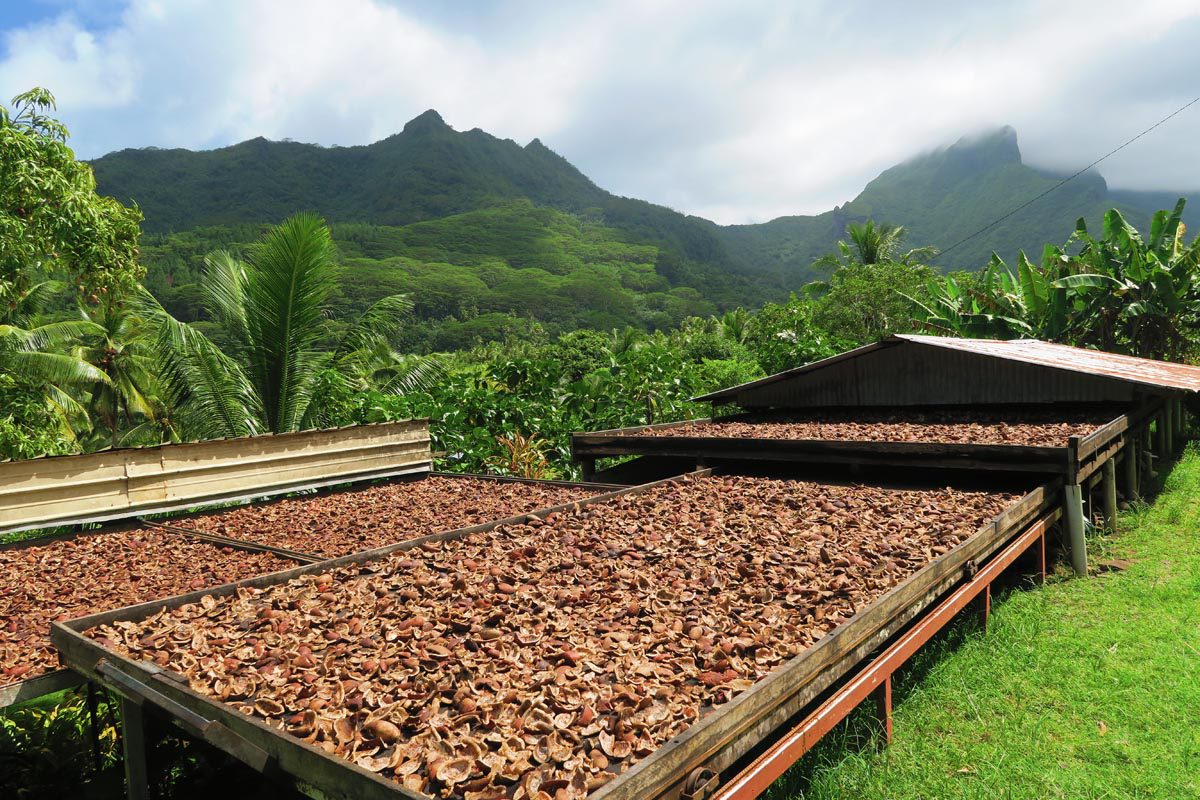
Faaroa River
The Faaroa River is the only navigable river in French Polynesia. The river originates from rainfall in the mountains and spills into Faaroa Bay. Along the way, it snakes through a pristine rainforest and passes through botanical gardens. The best way to explore the river and rainforest is on a guided river tour, on a kayak, or by boat. Such tours offer to extend the day and visit additional sites.
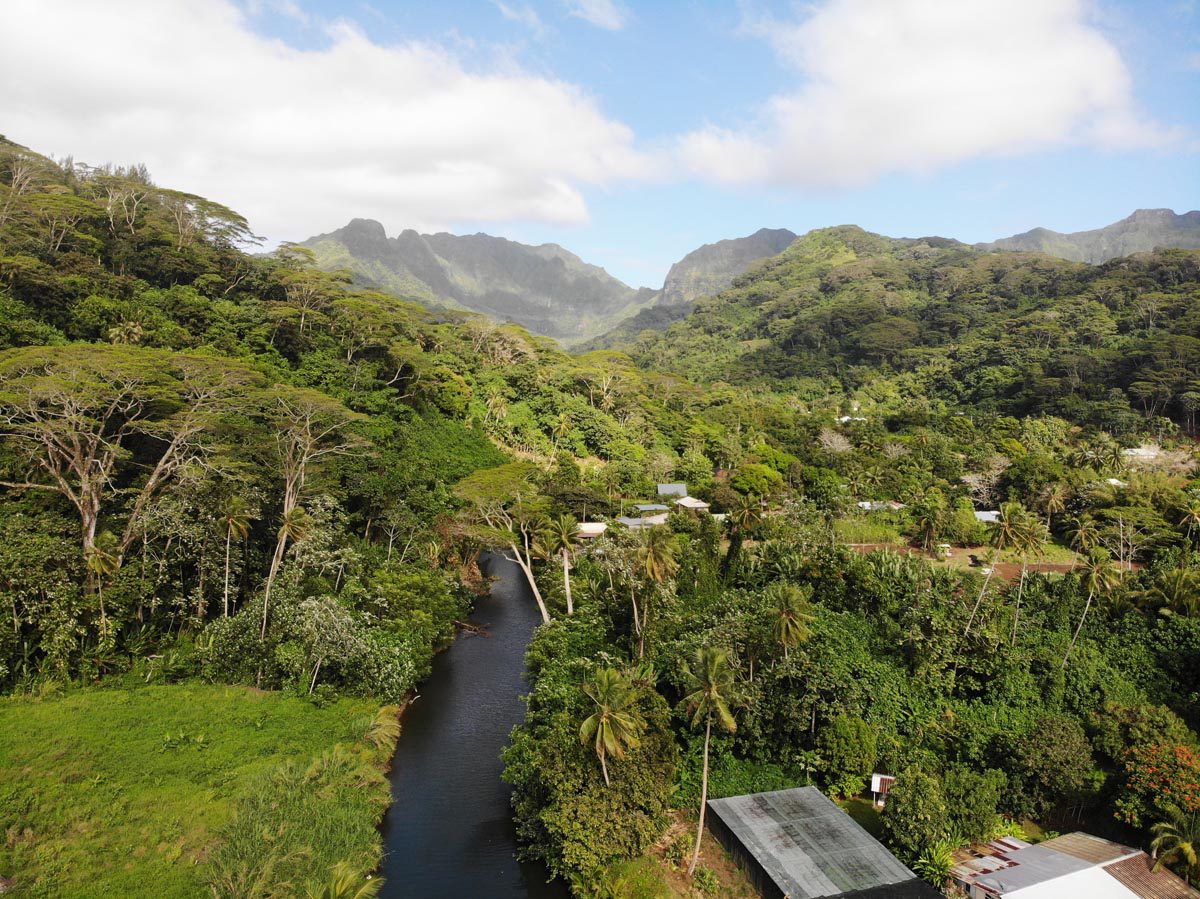
Raiatea Botanical Garden
You could easily spend a few hours exploring Raiatea’s botanical garden (Jardin Botanique de Faaroa). In any case, it’s worth stopping here to use the toilets and fill your water bottles. The beautiful garden is split into four sections, each showcasing different plant species (shoreline plants, mountain plants, valley plants, and ornamental plants). The Faaroa River forms one of the garden’s borders, with some river tours stopping here.
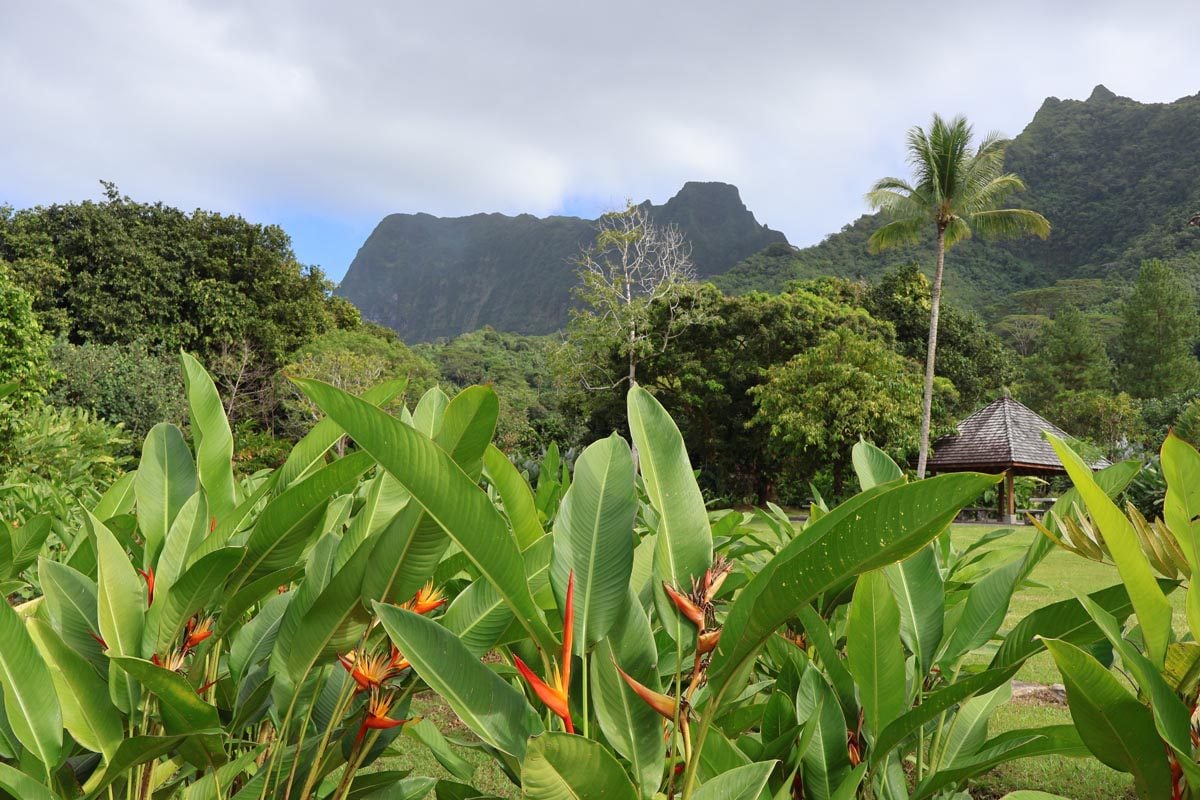
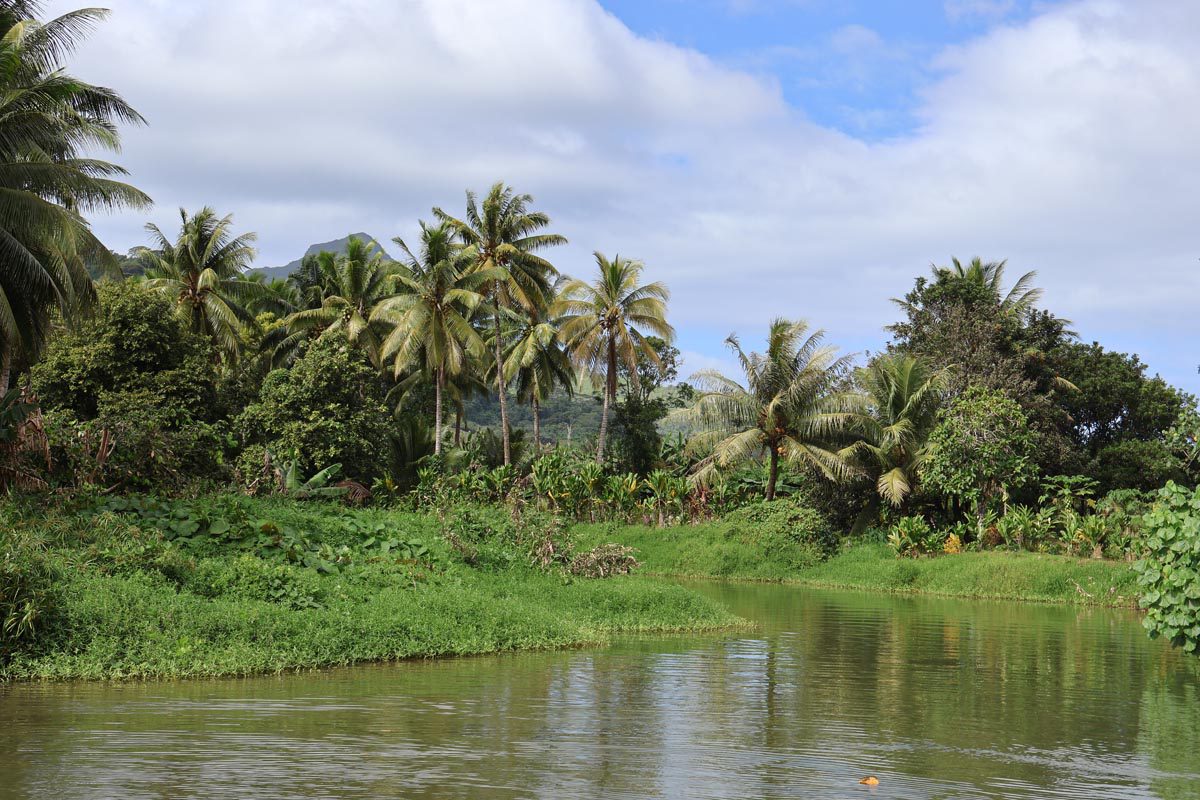
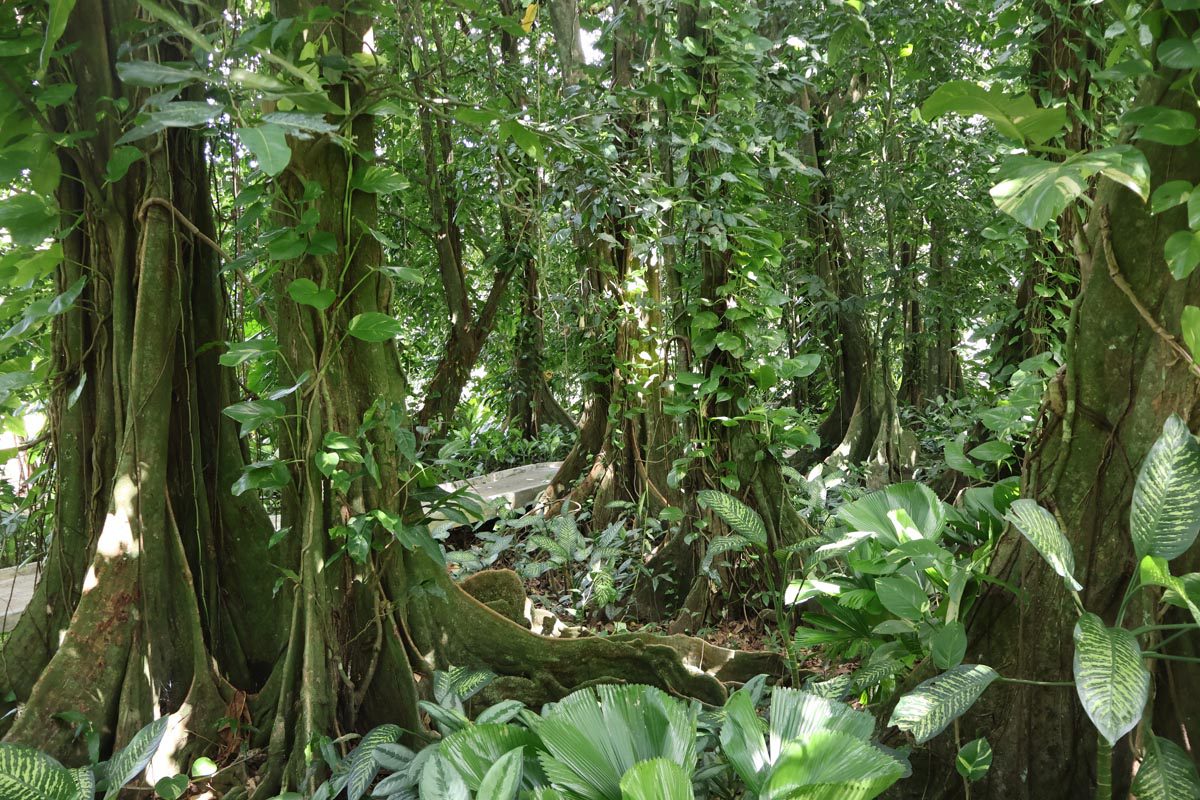
Belvedere Scenic Lookout
The Belvedere is Raiatea’s most accessible scenic lookout. To get here, get off the main coastal road and drive on the country road connecting Faaroa Bay with Faatemu Bay, bypassing the Taputapuatea region. If it’s not signposted, you’ll know you missed it when descending towards the coastline.
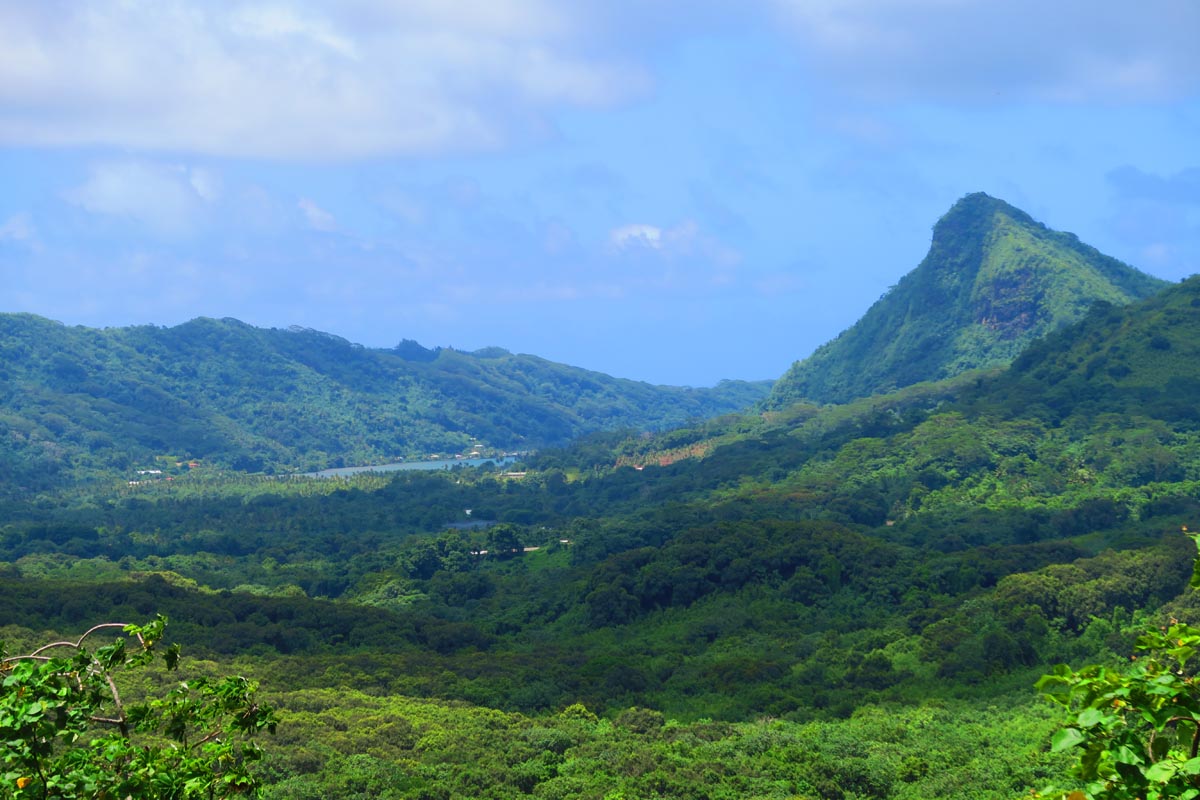
Marae Taputapuatea
This ancient religious and cultural Polynesian complex is why Raiatea is known as ‘the sacred island’. Of all the temples in the vast expanse of the South Pacific Ocean, Marae Taputapuatea is the most important. In recognition of its cultural significance, Marae Taputapuatea became a UNESCO World Heritage Site in 2017. Due to its popularity and UNESCO status, this six-hectare complex (14.82 acres) is clean and well-organized.
Marae Taputapuatea was the center of power for the ancient Polynesians. Kings and priests from some of the islands in the Polynesian Triangle would make the long voyage for key meetings at this exact spot. There are three platforms to explore, and even today, traditional ceremonies take place on the huge altar. You can feel the mana (ancient power) when exploring the complex. However, the structures themselves are not as impressive as they are significant. To see impressive ancient temples, you must travel to the Marquesas Islands or Easter Island.
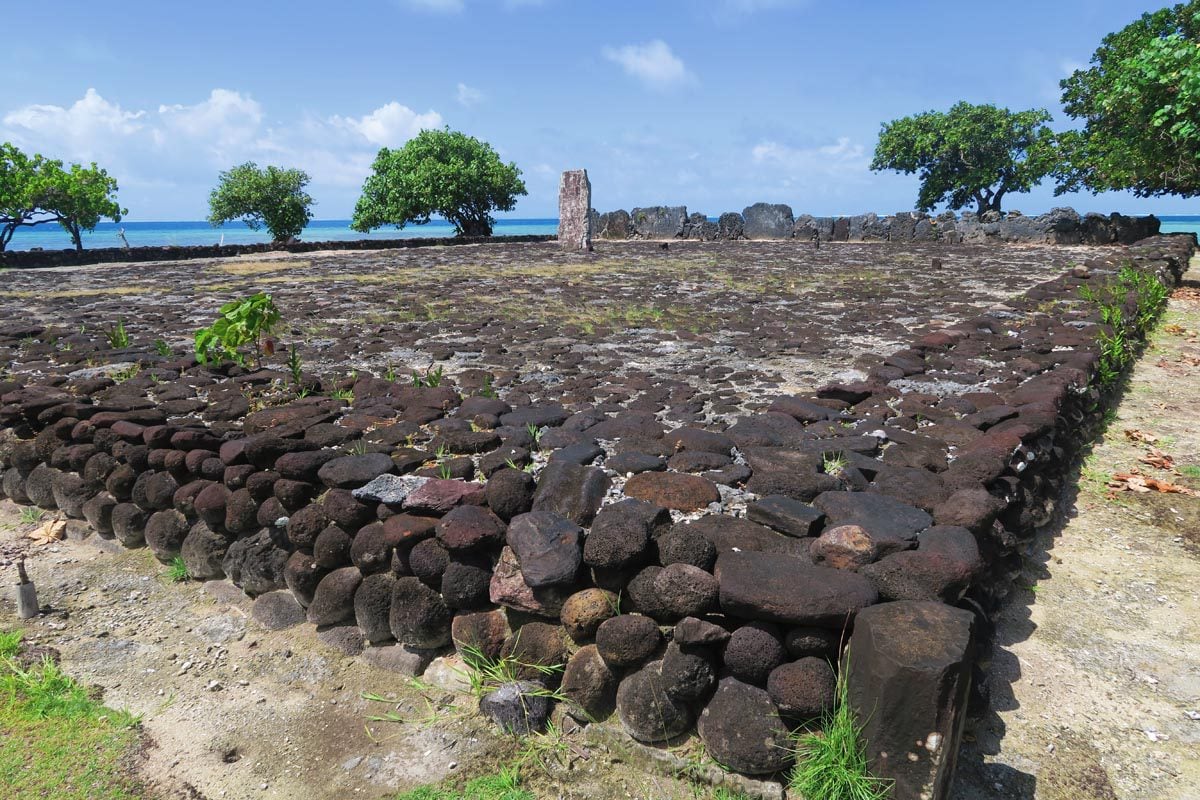
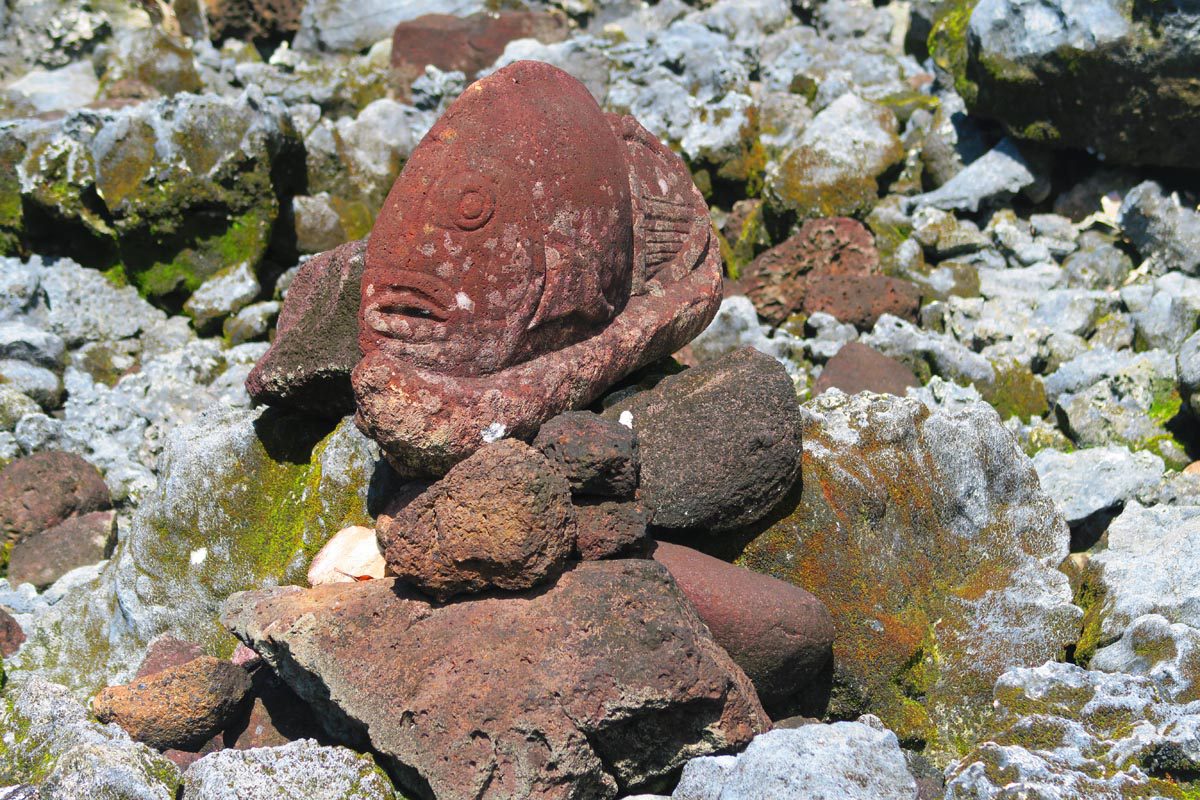
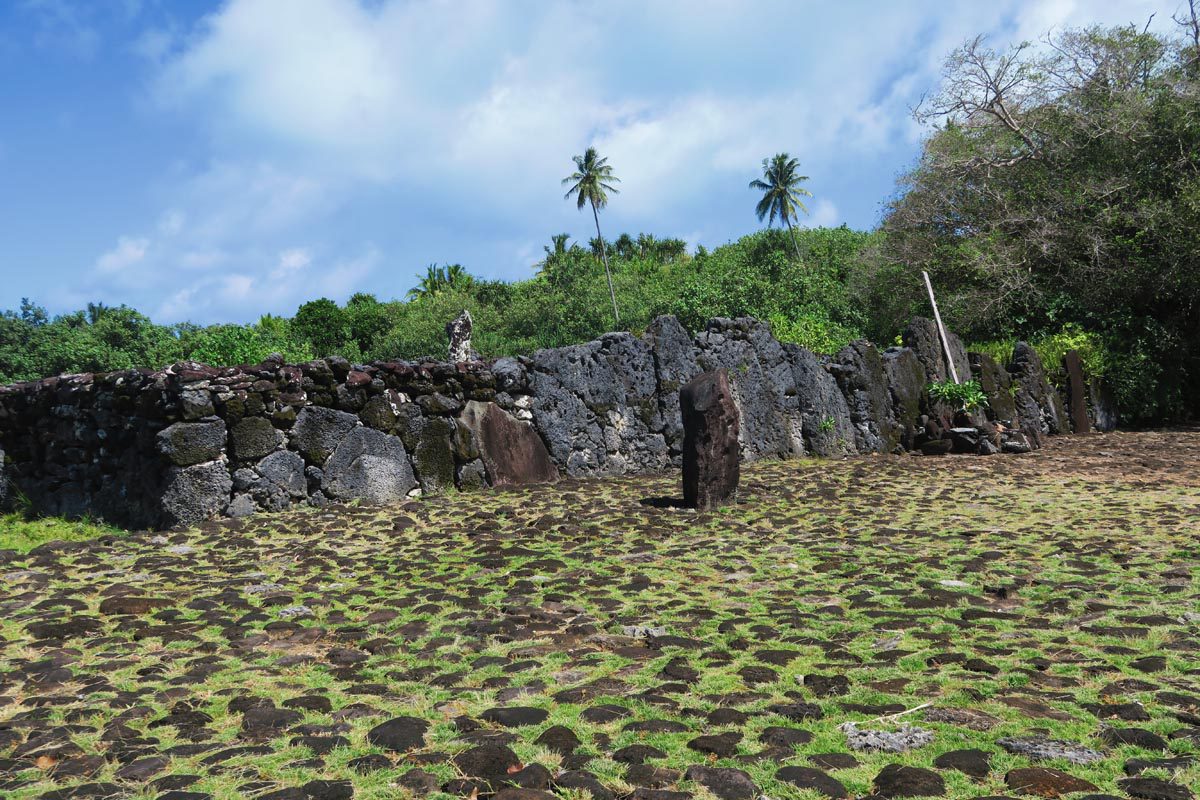
Public Beach
Next to the temple complex is the main island’s only white sand beach. I hate to spoil things for you, but this beach is artificial… For “classic” South Pacific beaches, you’ll have to head to the lagoon motu.
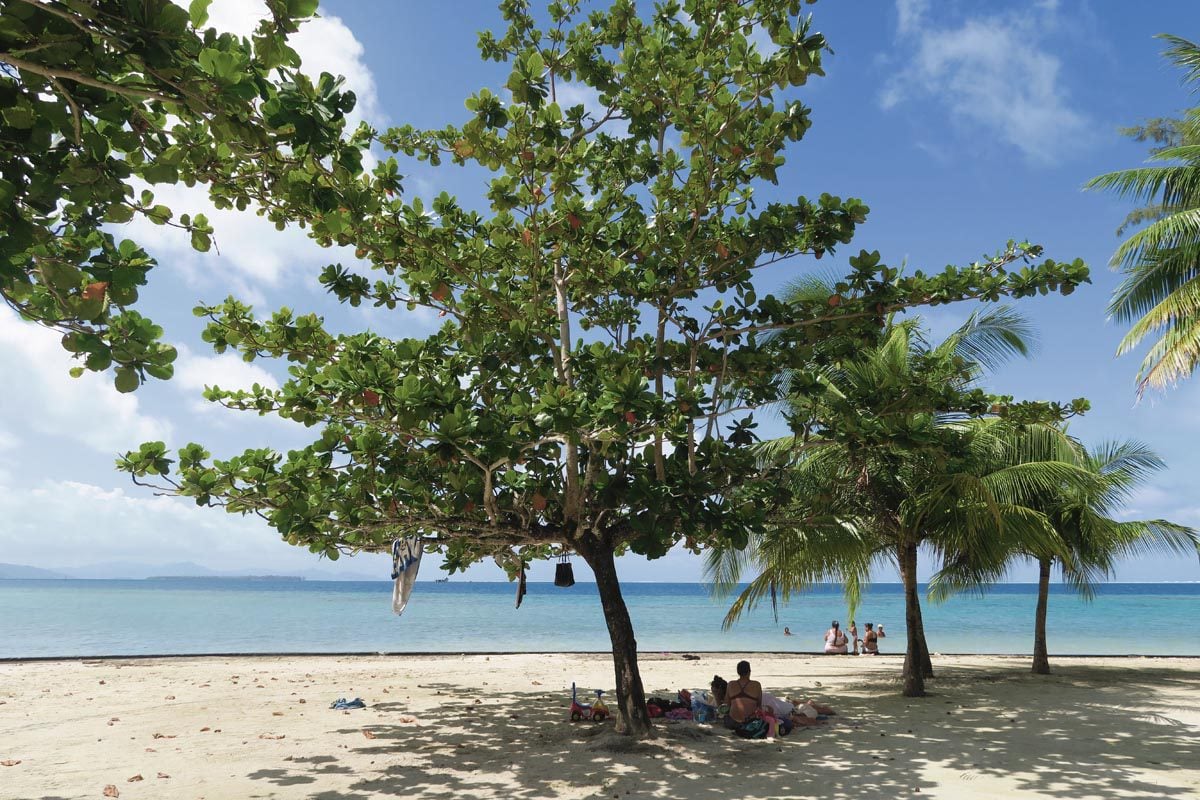
Taputapuatea Hike
The Te-Ara-Hiti-Ni’a hiking trail opened more or less in conjunction with the marae’s UNESCO status. This easy 2.5 km trail starts a short distance from the visitor center and heads to a panoramic lookout via several interesting historical, mythical, and geological sites.
South Coast
In the most remote part of Raiatea, you’ll be twisting your way around bay after bay with hardly anyone around, but when you do drive past someone, they’ll always say hello!
Hotopuu Bay
The coastal heads slightly into the mountainous interior after Marae Taputapuatea, offering splendid views of beautiful Hotopuu Bay beyond the dense rainforest.
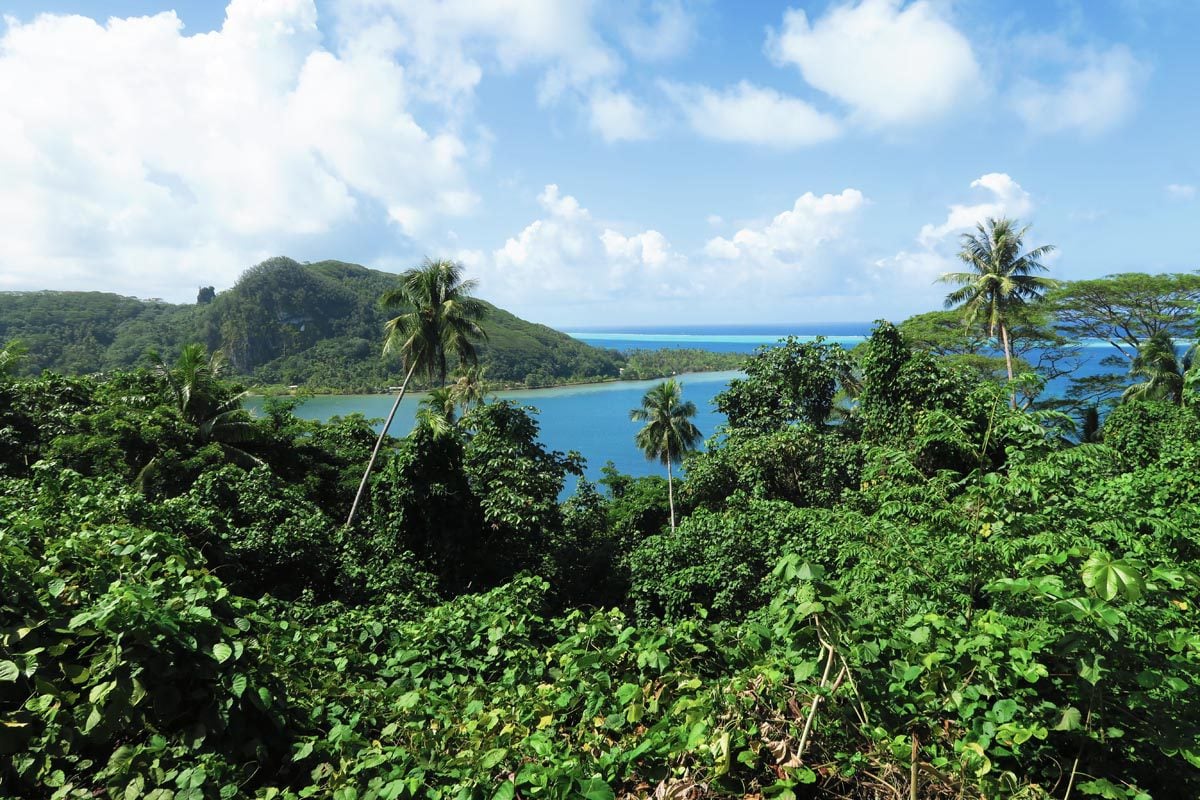
Puohine
The area around Puohine Village is a very pretty section on the coastal road. At certain times, you might have the road all to yourself. Check out the lagoon colors and basalt cliffs. After days of rain, there should also be a few cascading waterfalls.
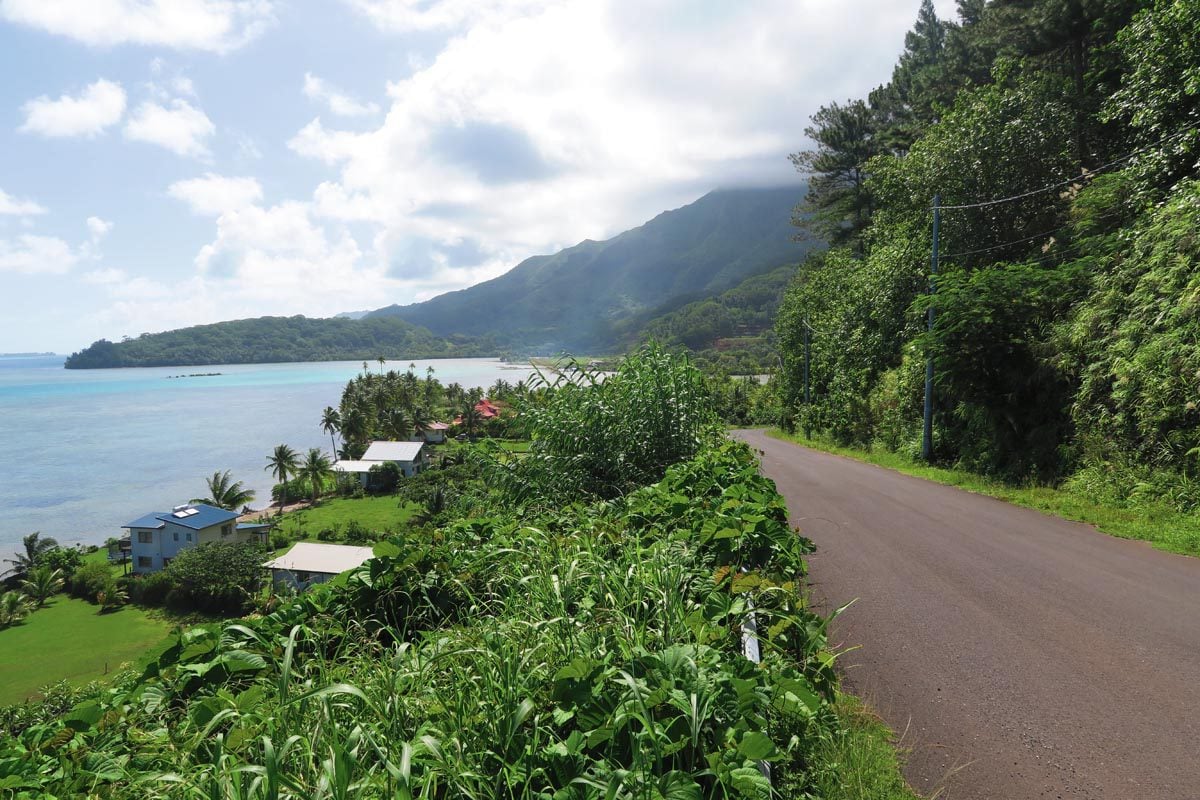
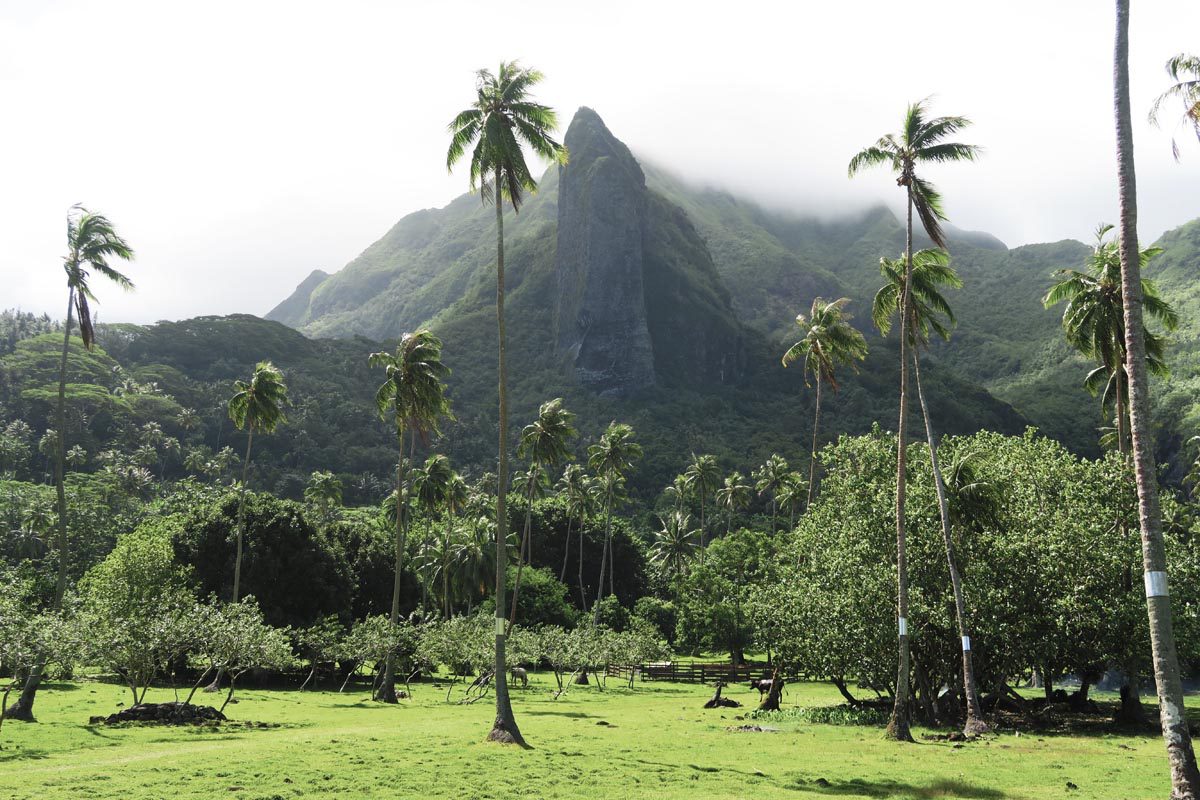
Faatemu Bay
Were we just teleported to Europe? The coastal road meets the southern end of the mountain road in sweeping Faatemu Bay. If it weren’t for the palm trees, you would think you’re somewhere in the British Highlands.
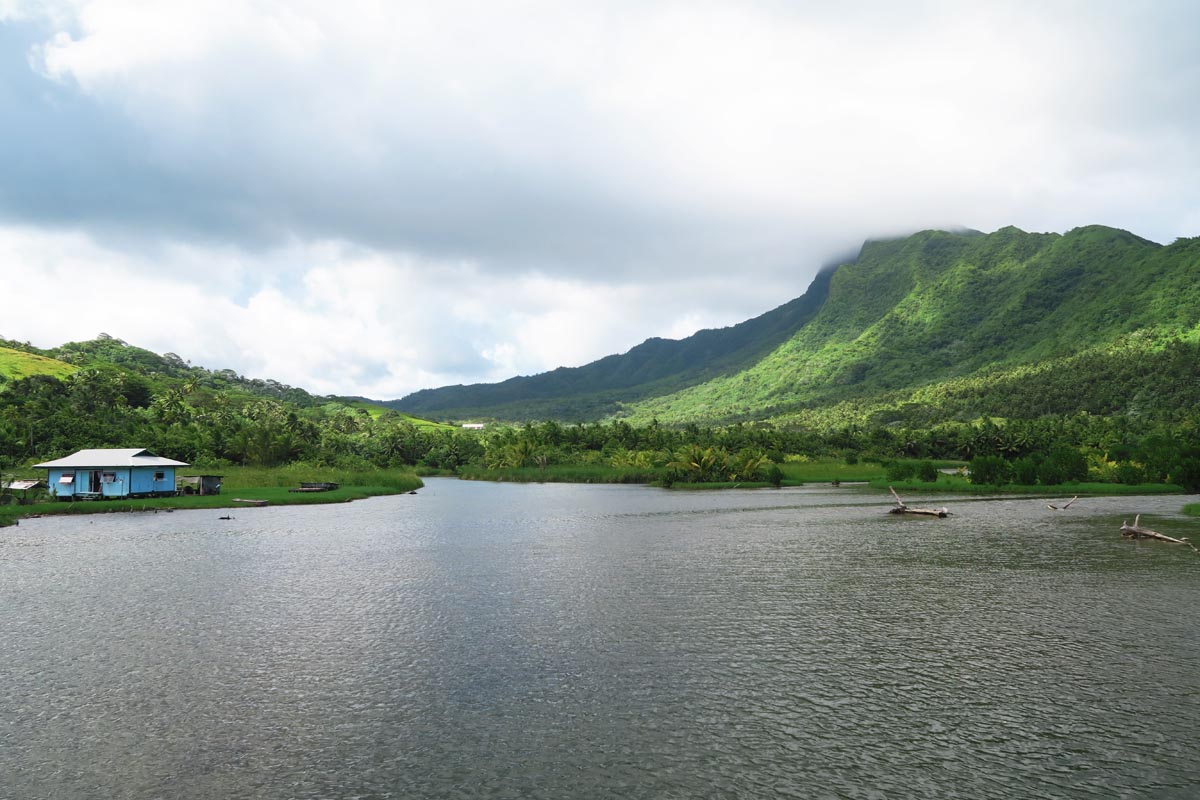
Motu Nao Nao is a rare commodity in Raiatea, with its wild coconut grove and pretty white sand beach not far from the coast. Luxury-seeking visitors can stay at Motu Nao Nao Private Island.
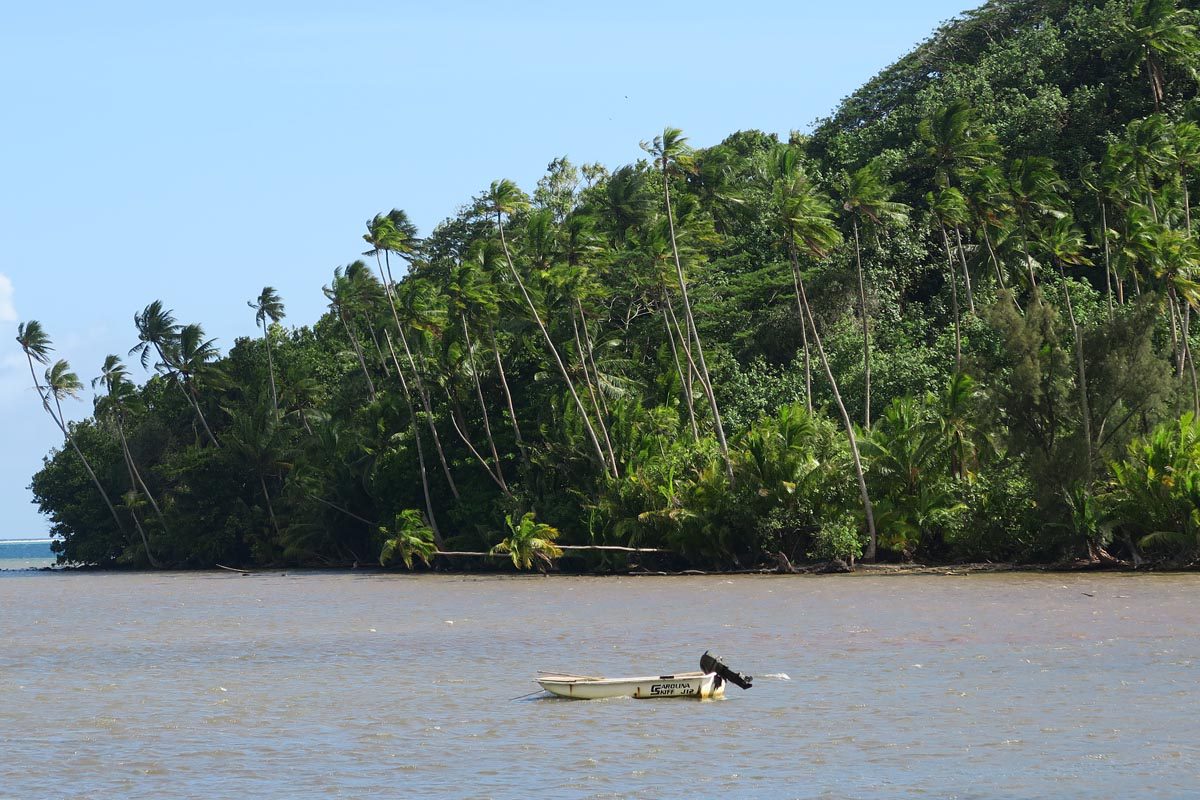
West Coast
You slowly “return to civilization” as you round the south coast en route to Vaiaau. This region has several small villages but not much else besides tranquil views.
Tuurotu Bay to Vaiaau
You can almost touch the string of beautiful motus floating just off the coast. Some are so small they only have enough space for a few palm trees and a simple shack. Families will use such motu as a vacation home or a place to relax when the need arises. Stop at Vaiaau Village to check out its pretty whitewashed church.
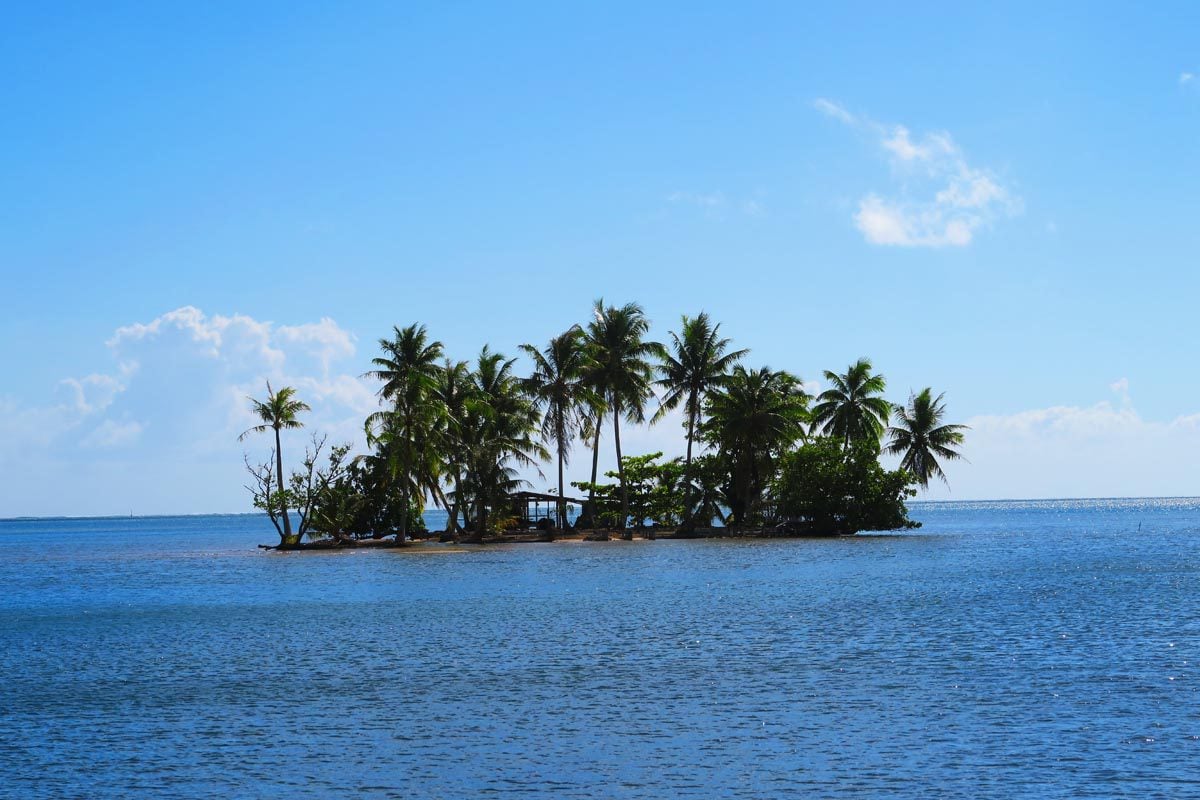
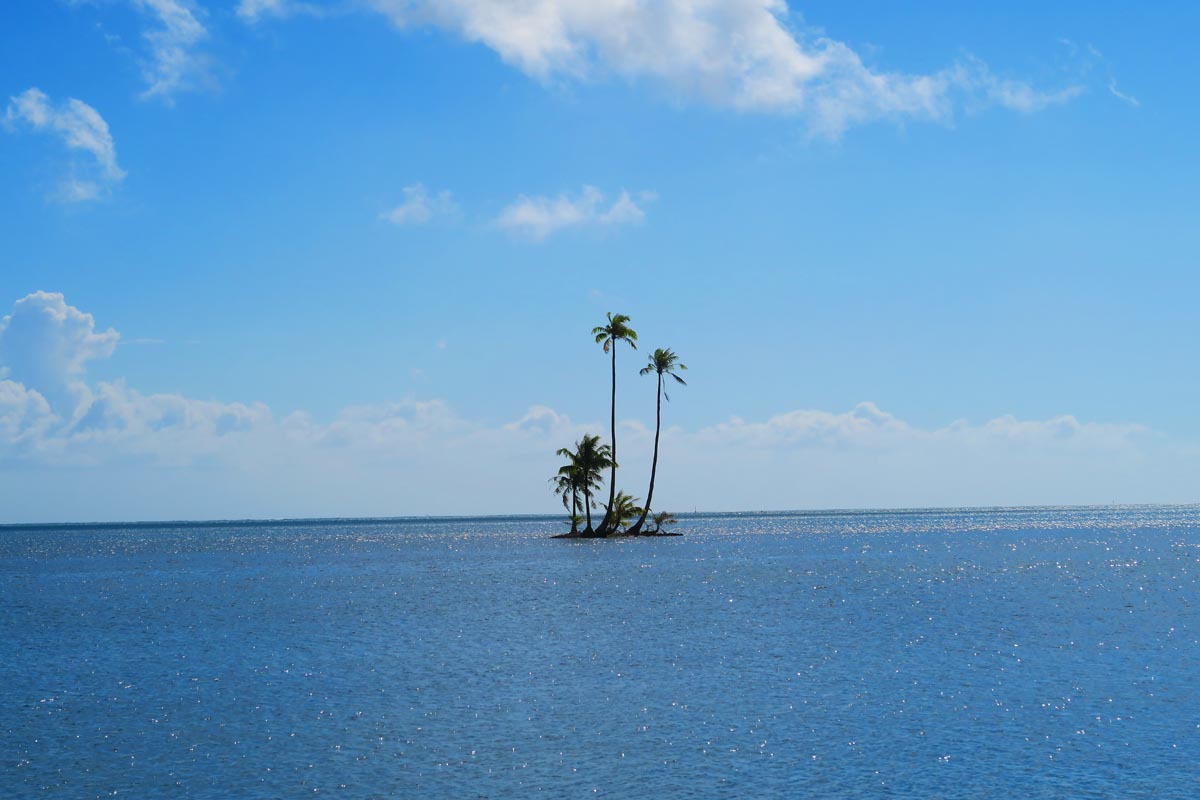
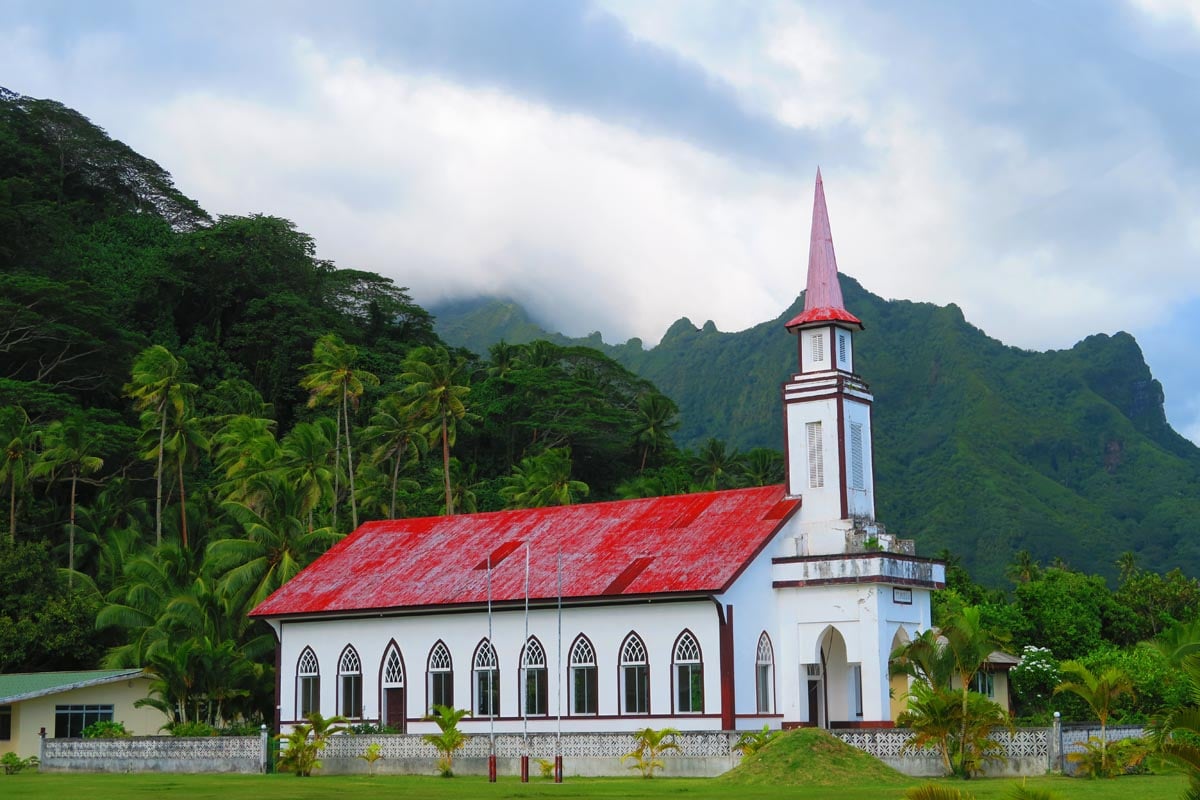
Vaiaau to Uturoa
If Marae Taputapuatea wasn’t enough, stop at seldom-visited Marae Tainuu. Walk behind the church and look at the ancient temple’s remains. There’s pretty much just a wall there today, and it’s not that special at all, so don’t feel bad about skipping this one and cruise back to Uturoa for a well-deserved beer.
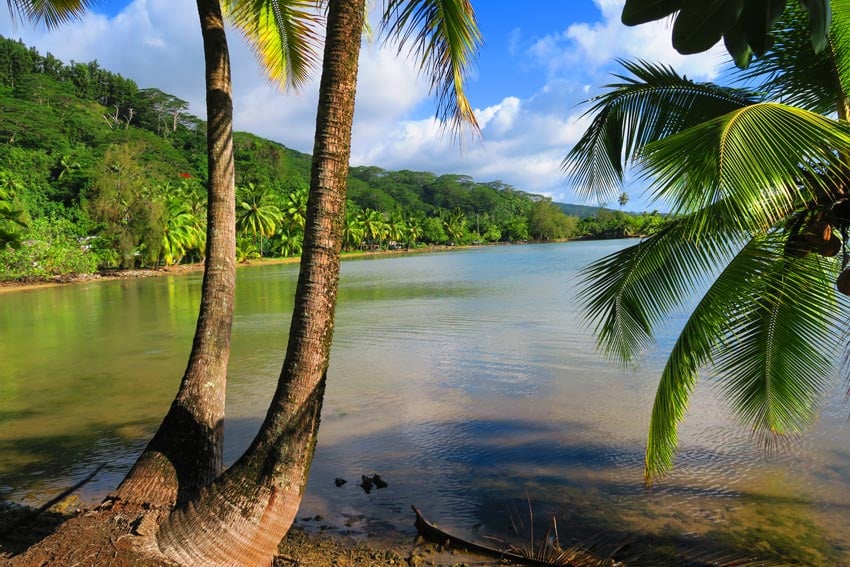
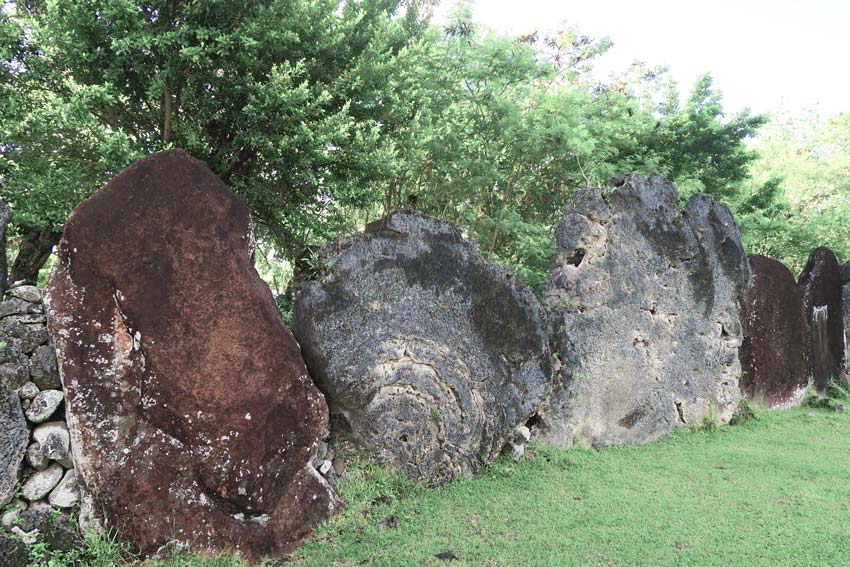
Temehani Plateau Hike – Tiare Apetahi Flower
Raiatea is not only ‘the sacred island’ but also home to one of the rarest flowers in the world – the tiare apetahi. This rare flower only grows in Raiatea and only on a single plateau. Despite an attempt to plant elsewhere, researchers cannot explain why the flower only survives here. Shrouded in mystery and hiding at the top of the island – isn’t this a good enough reason for a scavenger hike?
The hike in the Temehani Plateau starts with a climb to a pine forest that feels like you’ve just woken up somewhere in Scandinavia. This isn’t the tropics up here… In fact, these trees are not native to Raiatea. They were introduced in the ’50s or ’70s to create a local furniture-making industry. This plan proved to be a disaster. The wood wasn’t of good quality, and the cost of transporting the logs back to international markets was too high.
After an hour of climbing, you reach the Temehani Plateau. The feeling? Ireland or England, either one. In fact, that’s precisely what the first European explorers said… The soil here begins to be quite acidic, rising from the extinct volcano some 200,000 years ago. So not much grows here…
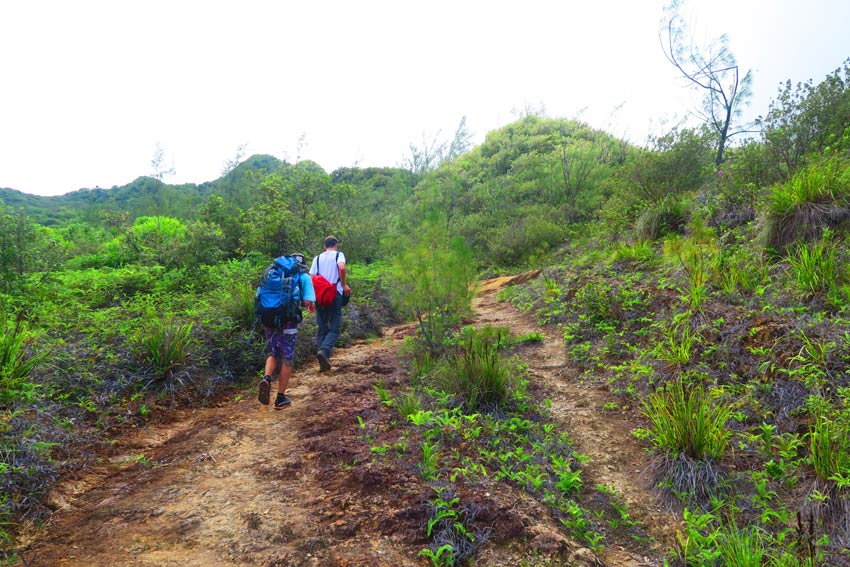
Before we enter the clouds, it’s time for some panoramic views. On a clear day, you can even see the pretty island of Maupiti, some 70 km away.
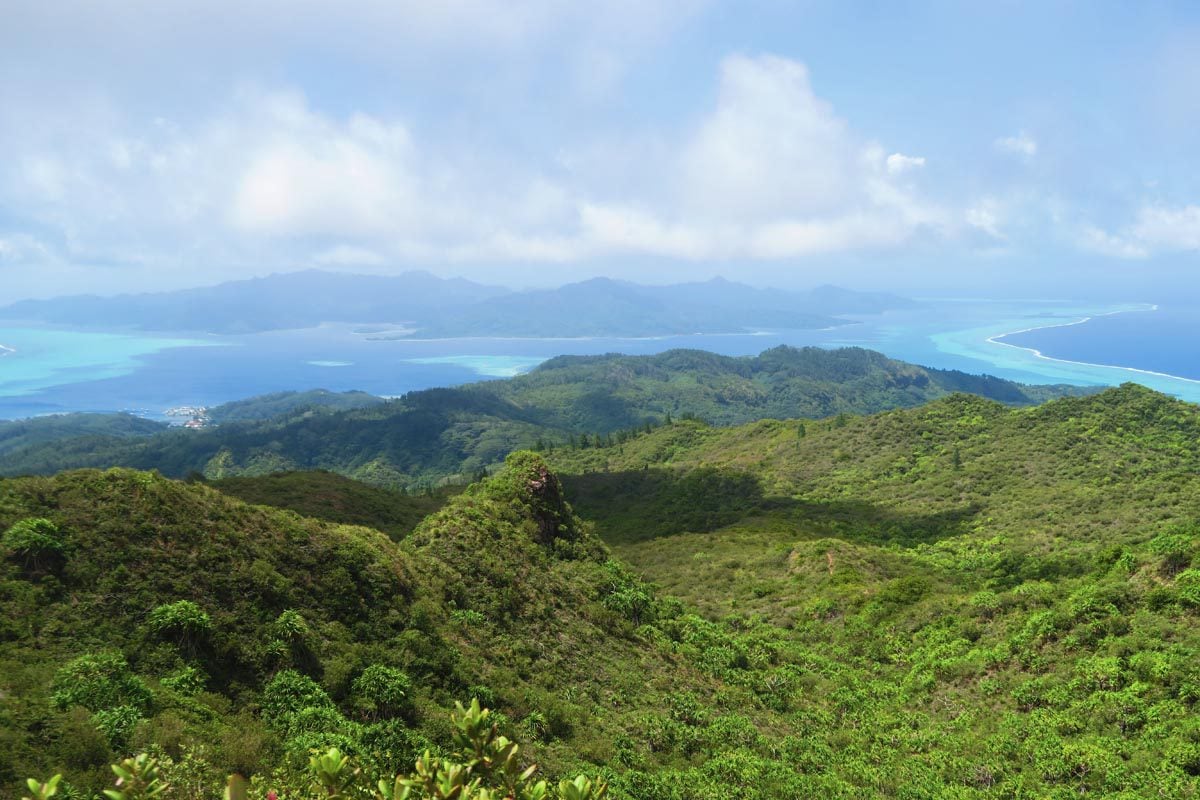
Now at 650 meters, it gets very wet and slippery on the bare volcanic rock after rainy days. You might take a little detour to check out a 40-meter-deep lava tube. Our guide, Kiam, said this tube runs all the way beneath the lagoon and into neighboring Tahaa island.
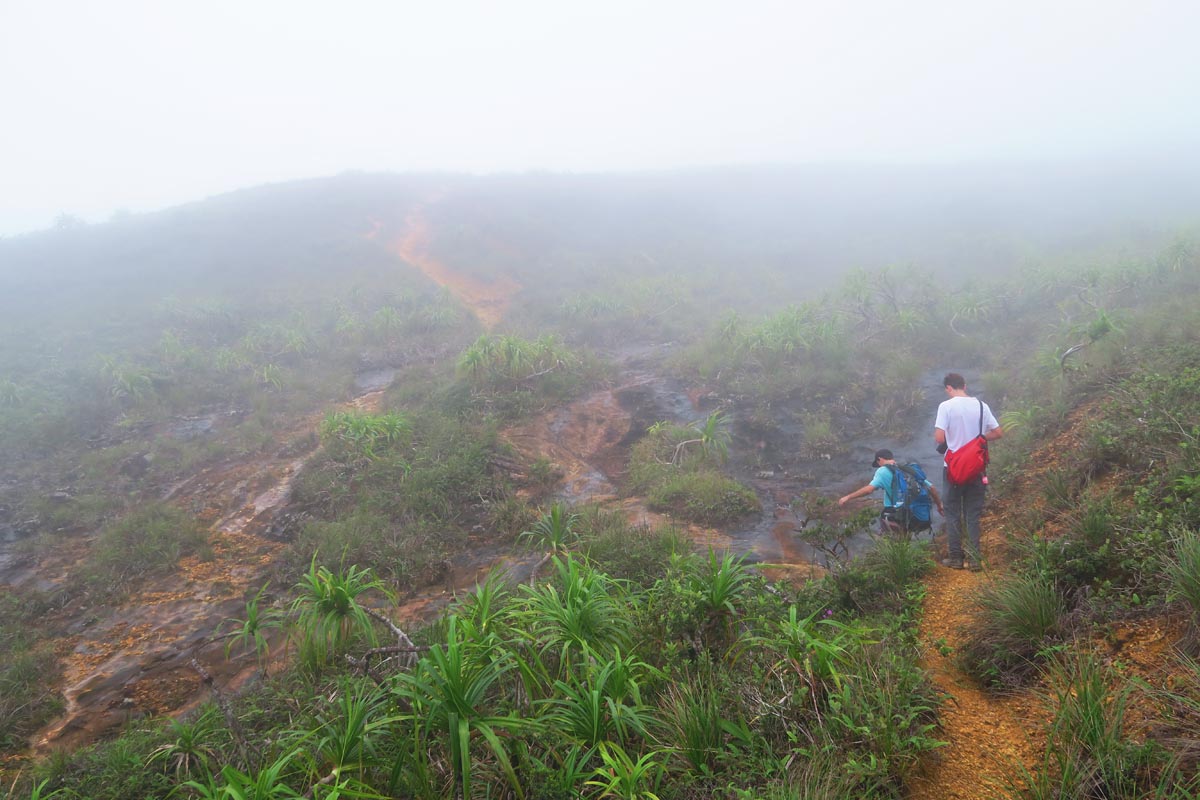
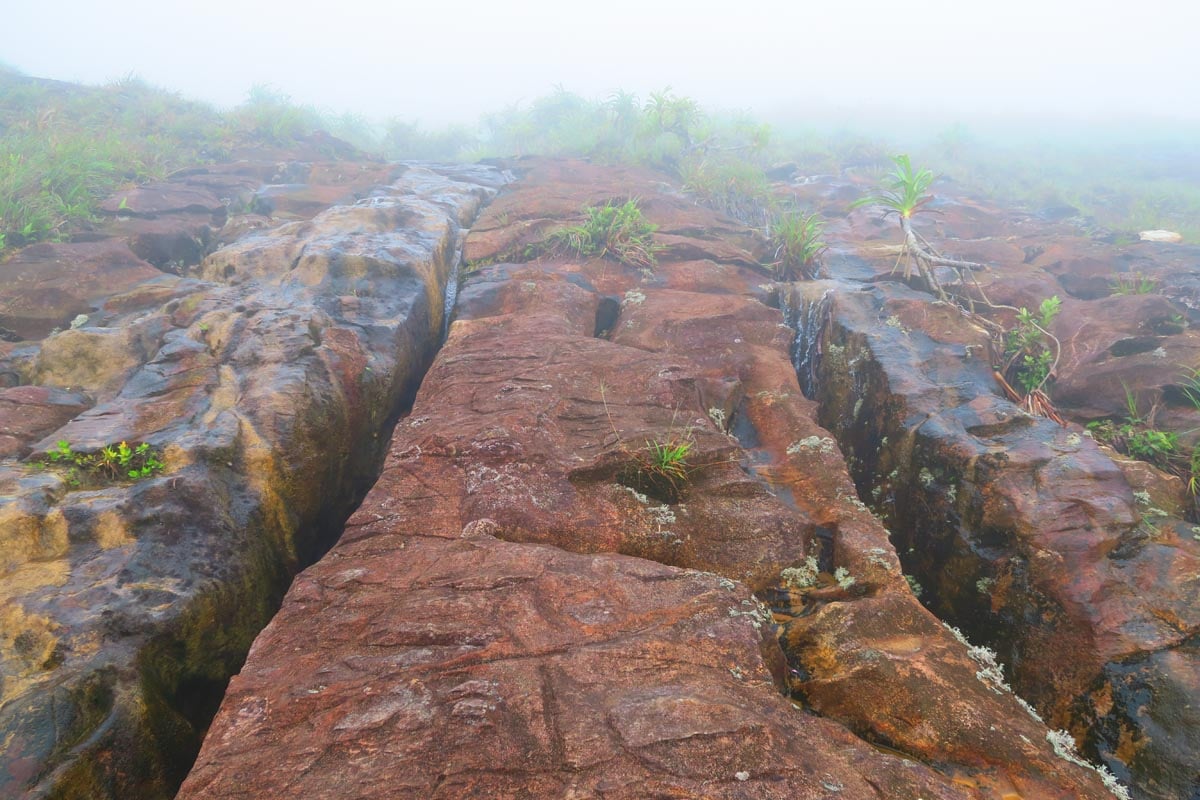
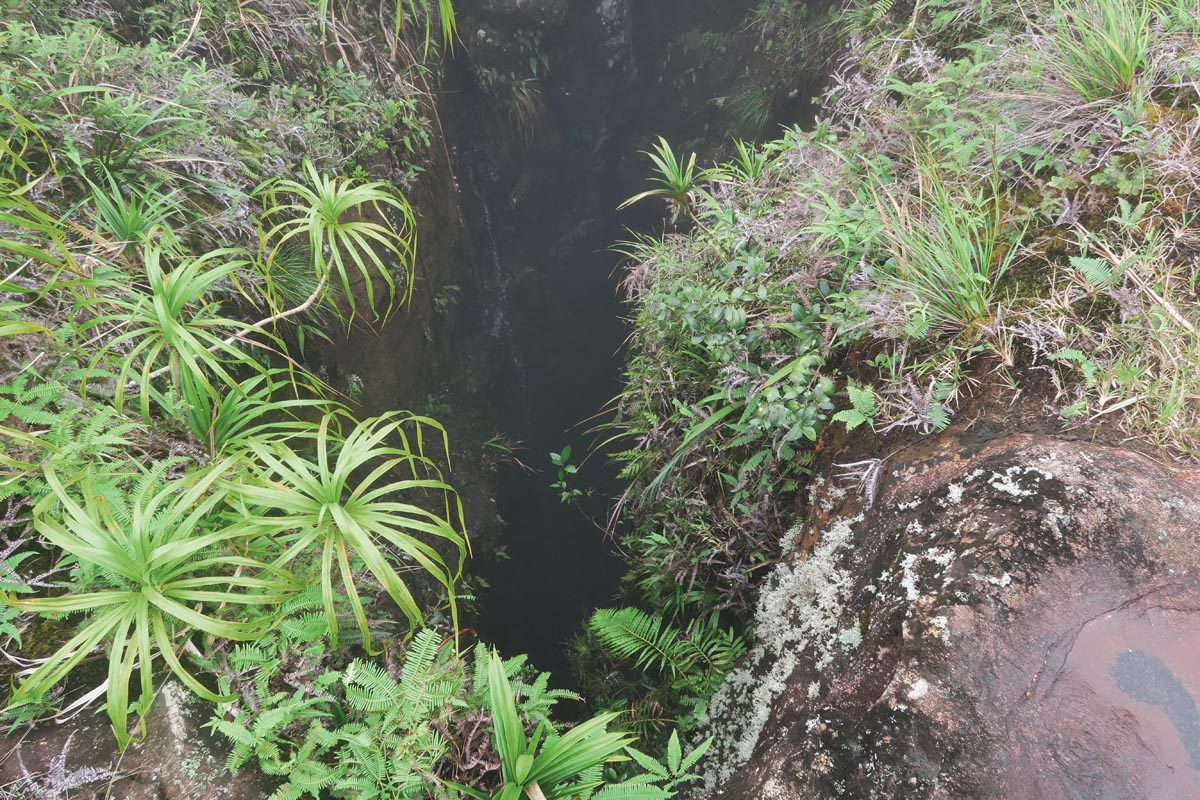
We continued walking along the top of the plateau until Kiam stopped in front of an ordinary-looking bush. A closer look revealed why we came out here – the tiare apetahi! This rare flower is thought to have originated in Hawaii, though these days only growing on this plateau. It’s part of the gardenia family, the heavenly-scented flower that grows abundantly throughout French Polynesia.
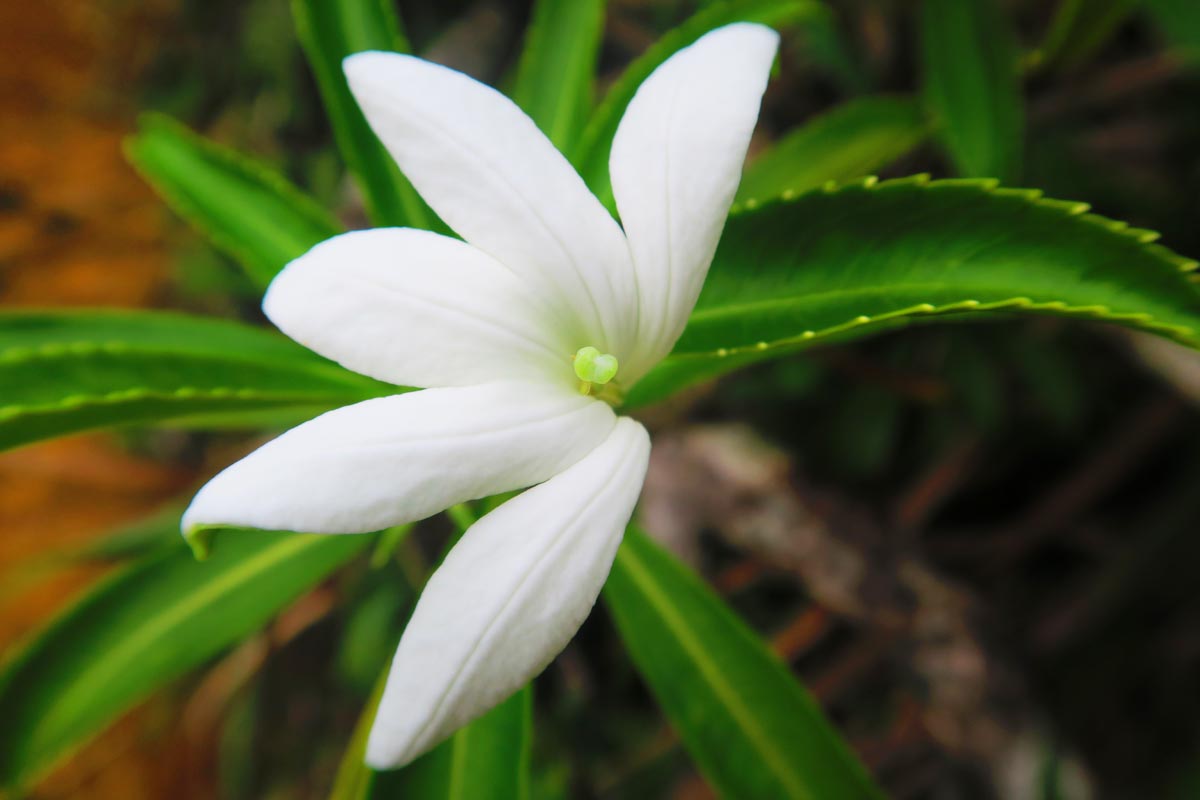
Legend has it that a long time ago, there was a beautiful Tahitian woman named Apetahi who fell in love with the son of a king. When the prince had to leave the island on a royal quest, he assured the beautiful woman he would return. Waiting on the summit of the plateau to scout for her lover’s returning boat, she could no longer overcome the burden of waiting. She cut her arm off, planted it in the ground, and jumped into the abyss. Out sprung the beautiful flower, with five petals shaped like a hand.
With this achievement unlocked, we continued along the summit of the northern plateau, spotting a waterfall here and there and sliding back down. We stopped by a freshwater hole for lunch before finally returning to civilization.
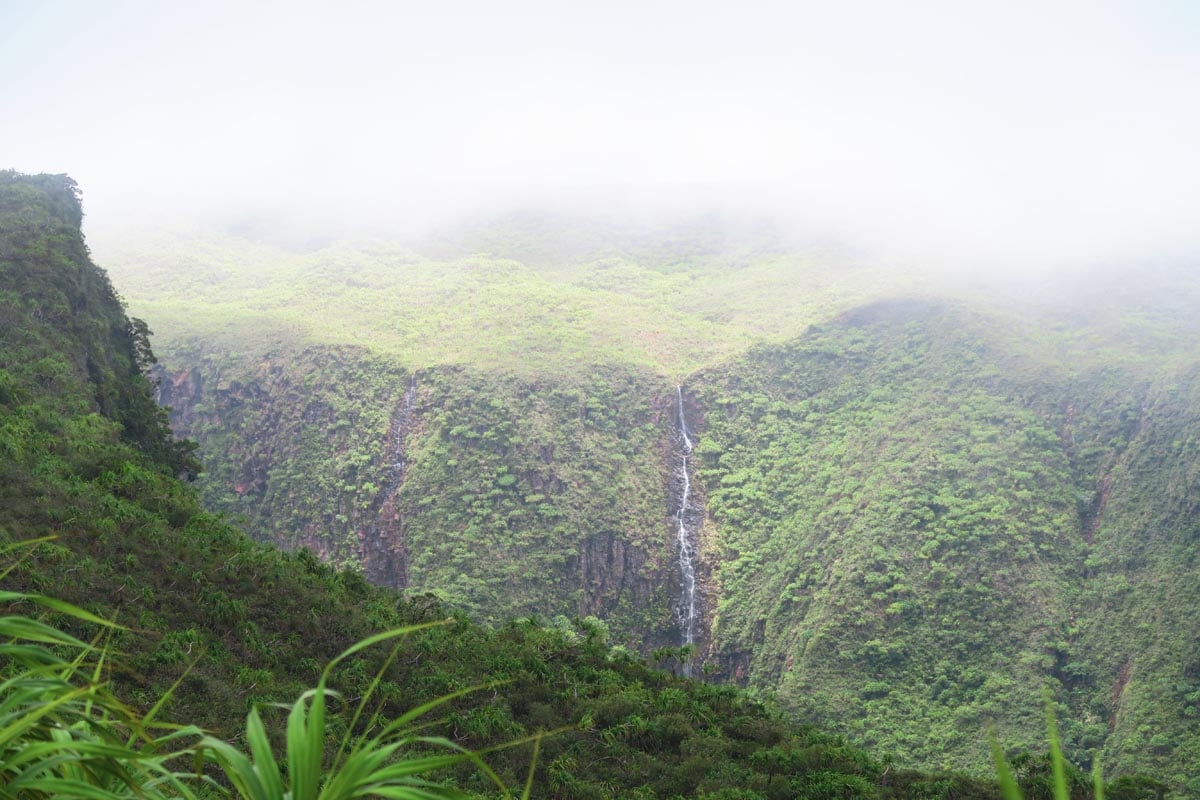
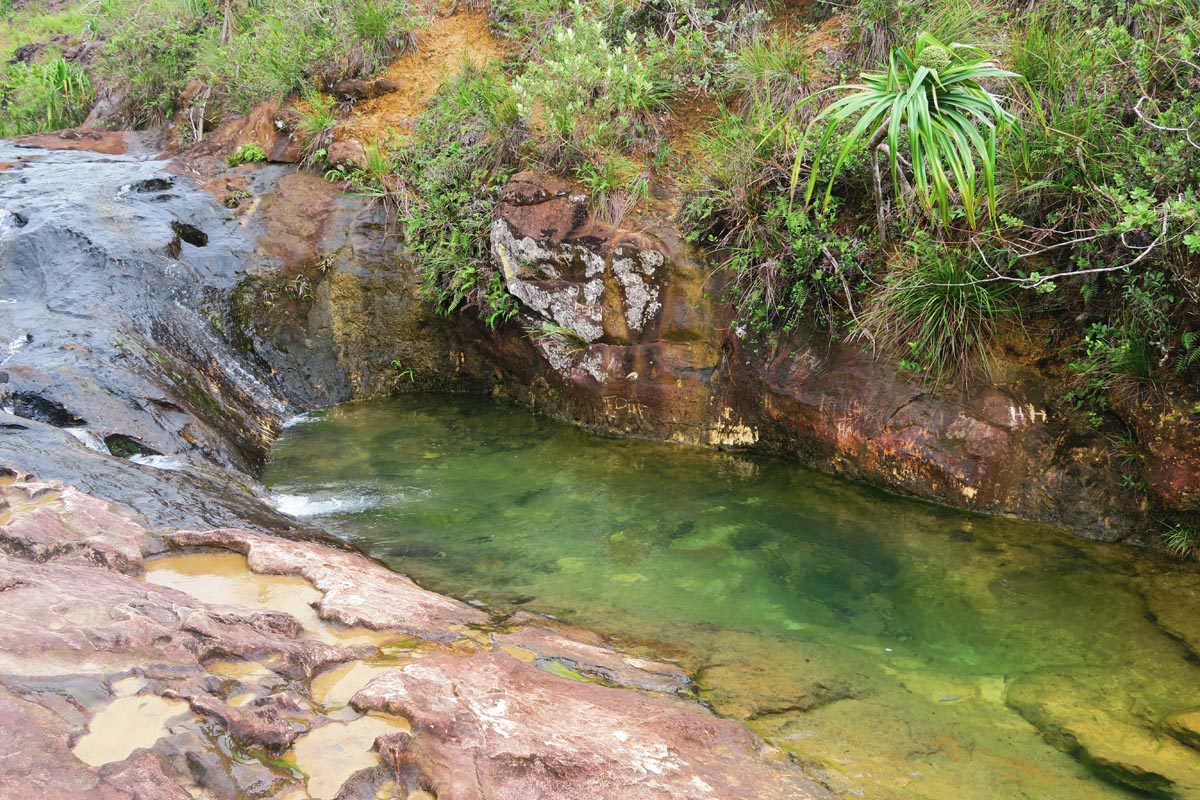
Logistics: only attempt this hike with a certified guide. You can contact Kiam Marti (kiam.marti@gmail.com | +689 87 272300). Expect 6-7 hours (15-20k m’s) of moderately difficult hiking (leave at 9 am and back ~3:30 pm). Wear good hiking shoes (it will be slippery up at the top), long pants (vegetation can be knee-high in some parts), bring swim gear if you want to splash in the water hole, 2L of water minimum, rain gear (just in case), change of clothes for after (you’ll be soaked in sweat). Your guide should bring lunch and snacks, but inform him of any dietary requirements beforehand.
Three Waterfalls Hike
The Three Waterfalls Hike in Raiatea (Les Trois Cascades) is a guided half-day activity deep in the rainforest. Do not attempt this without a guide; the trail is unmarked and passes private property. The moderate hike begins in the thick rainforest, crossing slippery rivers, bamboo, and beautiful mape trees (Tahitian chestnut). Along the way, you’ll learn about some of the plants that grow here, like the red Tahitian ginger, tamanu nuts, and a few others.
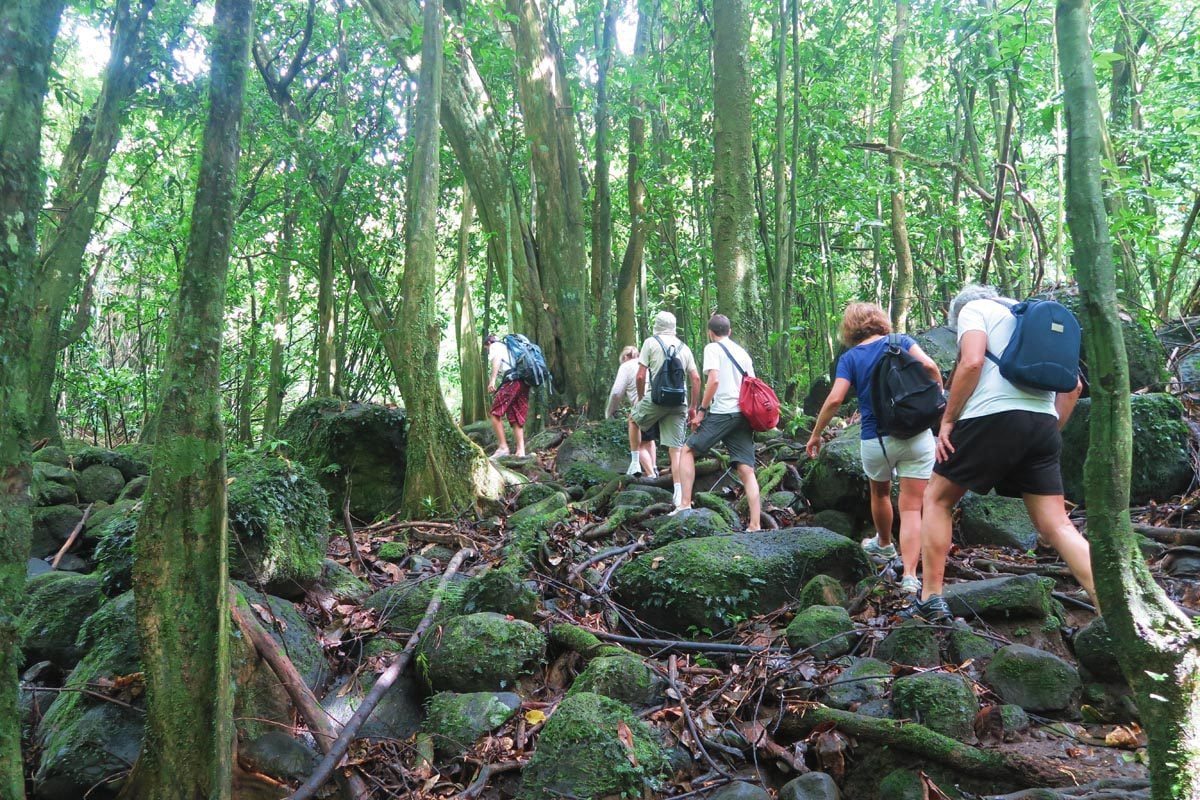
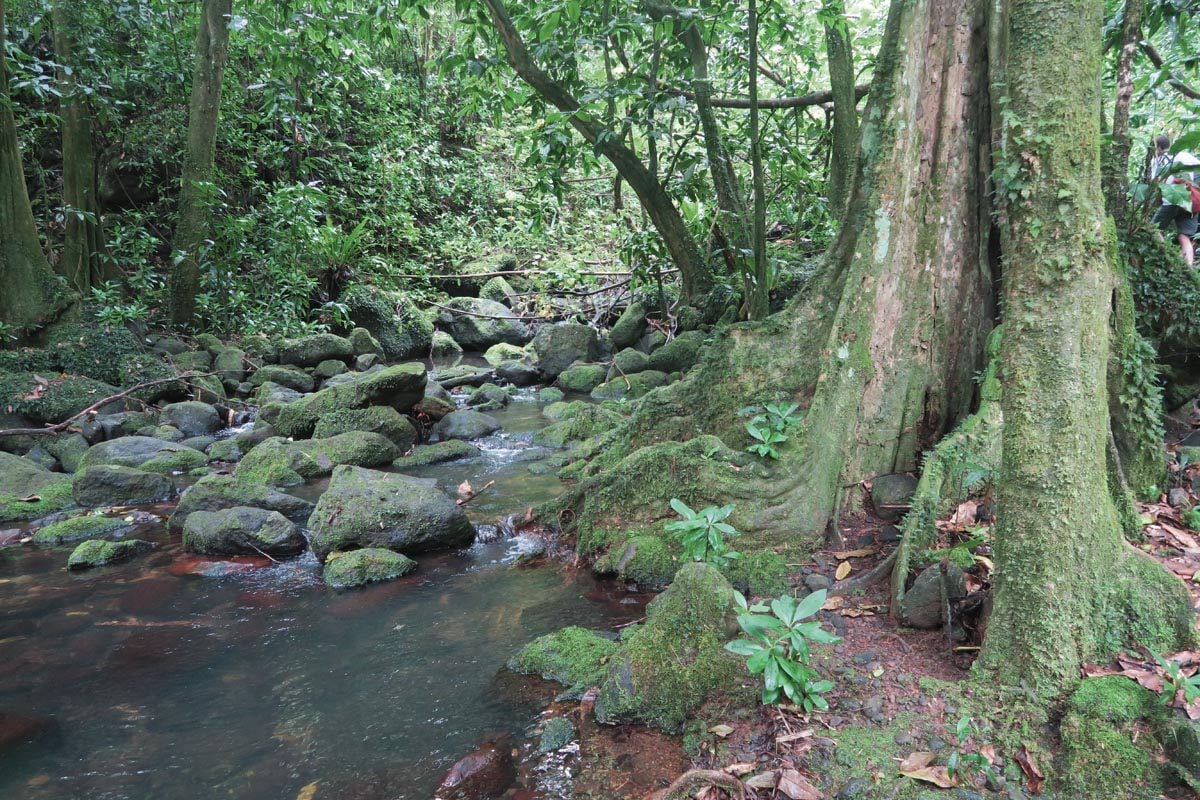
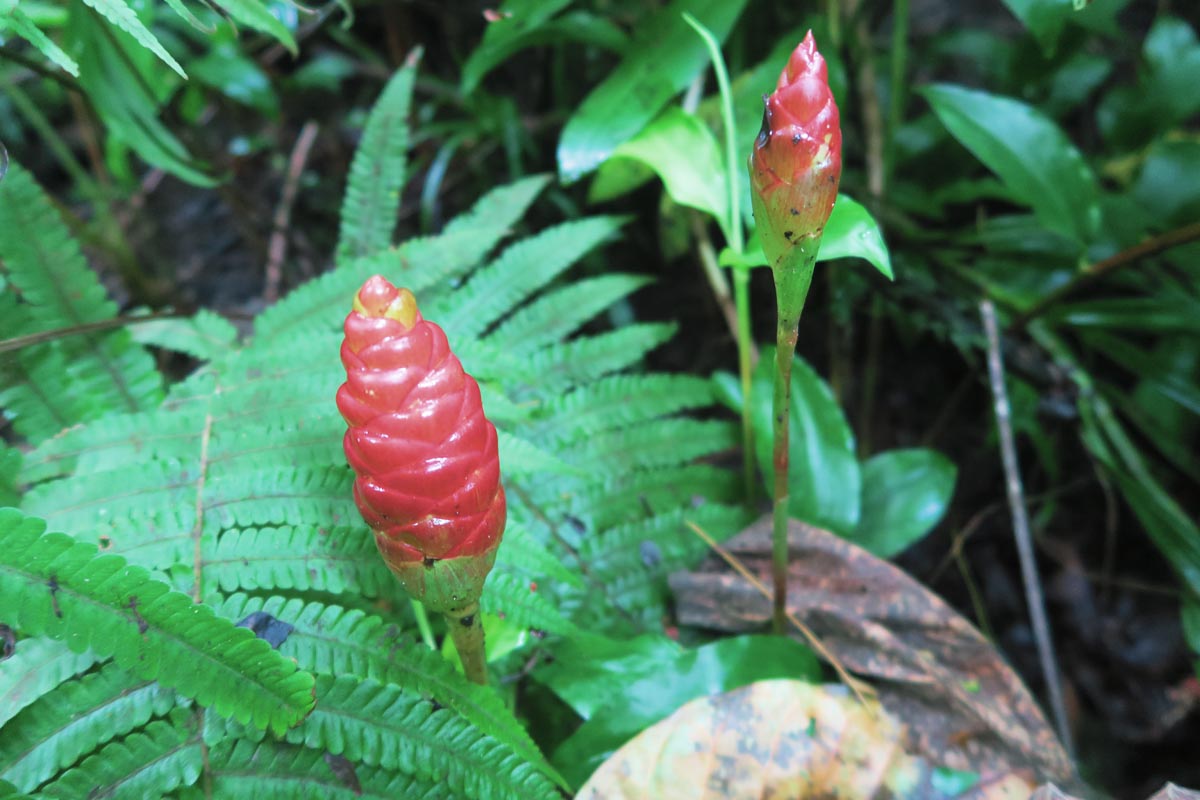
The first waterfall is reached after about an hour of walking, though it’s nothing special. The second waterfall, on the other hand, is starting to make things more interesting.
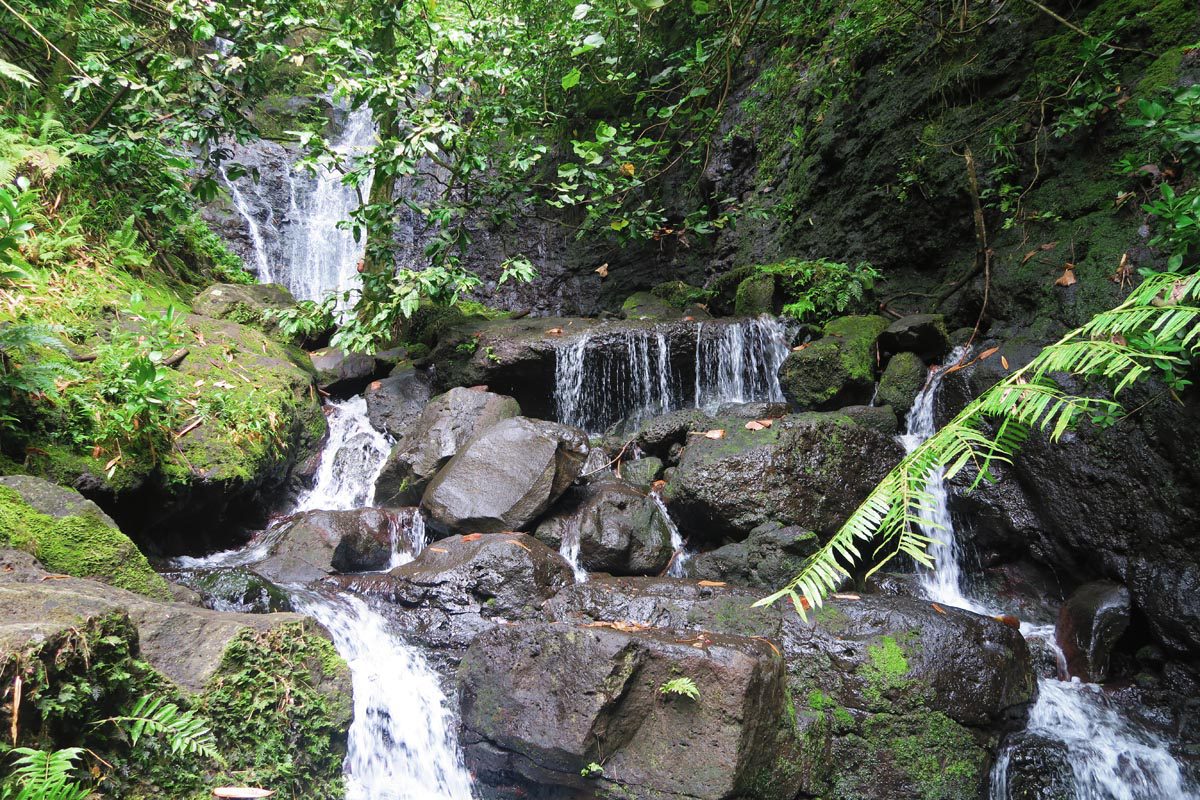
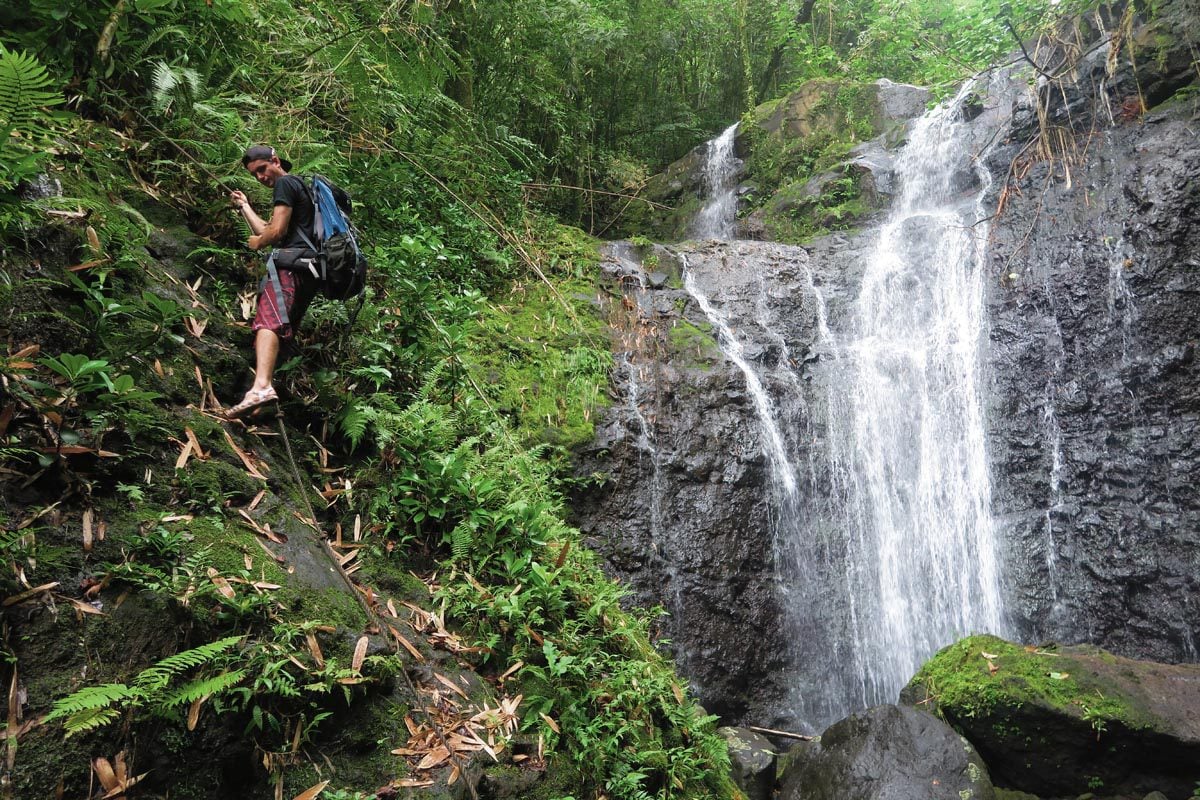
To get to the final waterfall, you do a bit of slippery climbing using a rope and somehow find a way through the overgrown bamboo. It’s all super worth it as you reach the climax of the hike.
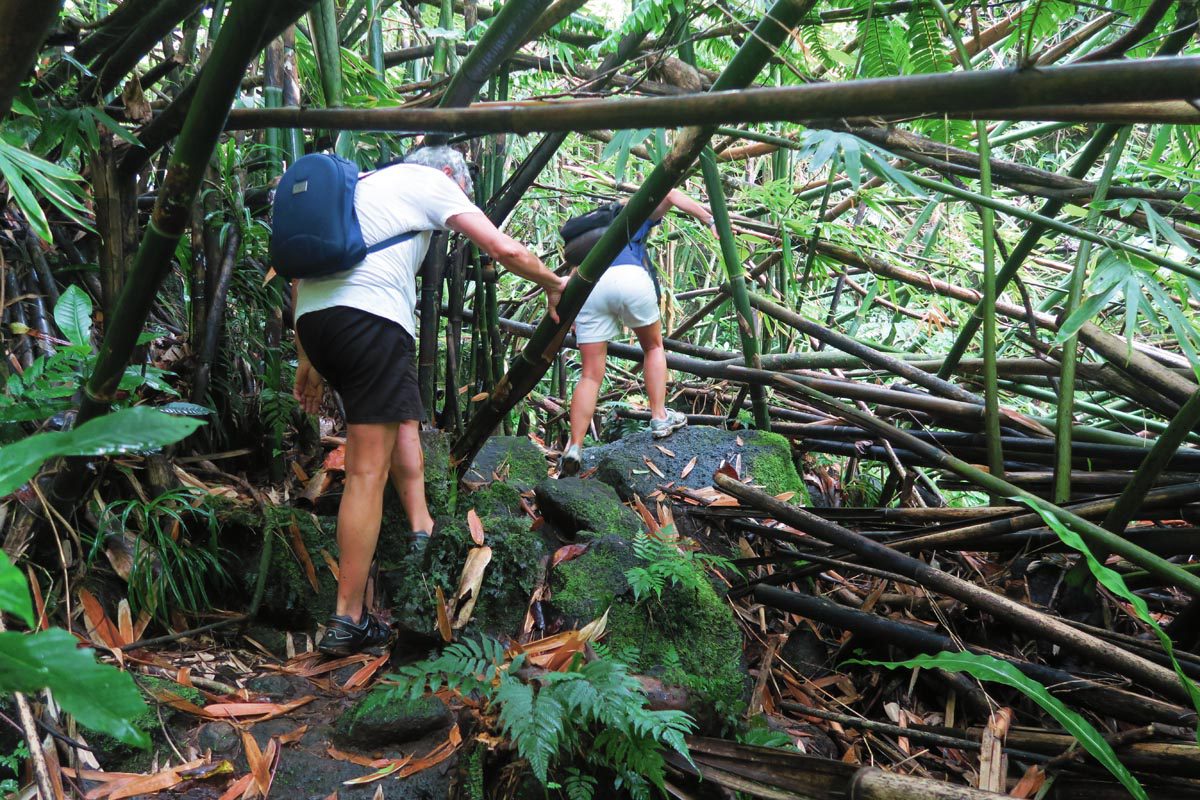
The third waterfall is a waterfall splashing into another waterfall. It’s about 40 meters high and so beautiful that a few commercials were shot here. You know, the ones where there’s this exotic woman shampooing herself beneath the waterfall or something like that…
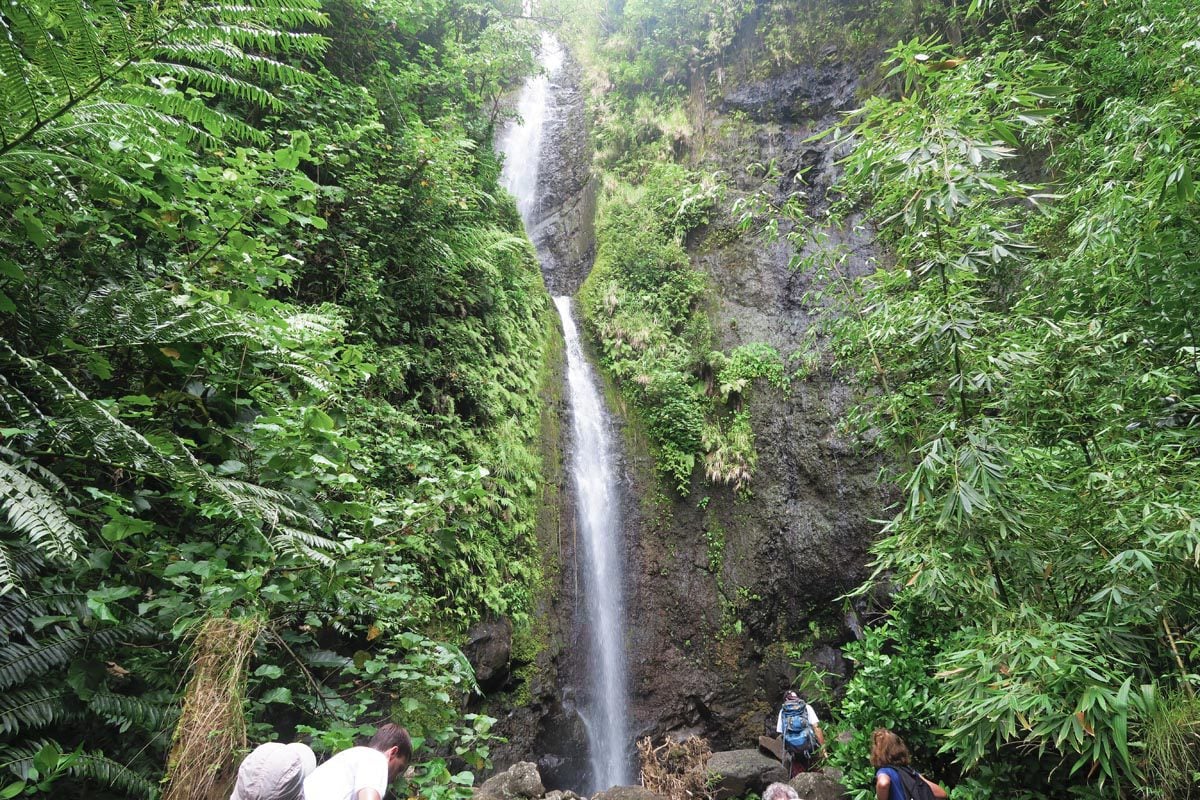
You’ll park here for a while, swim, and enjoy being in the middle of nowhere. Spot the freshwater shrimps calling this place home, a local delicacy!
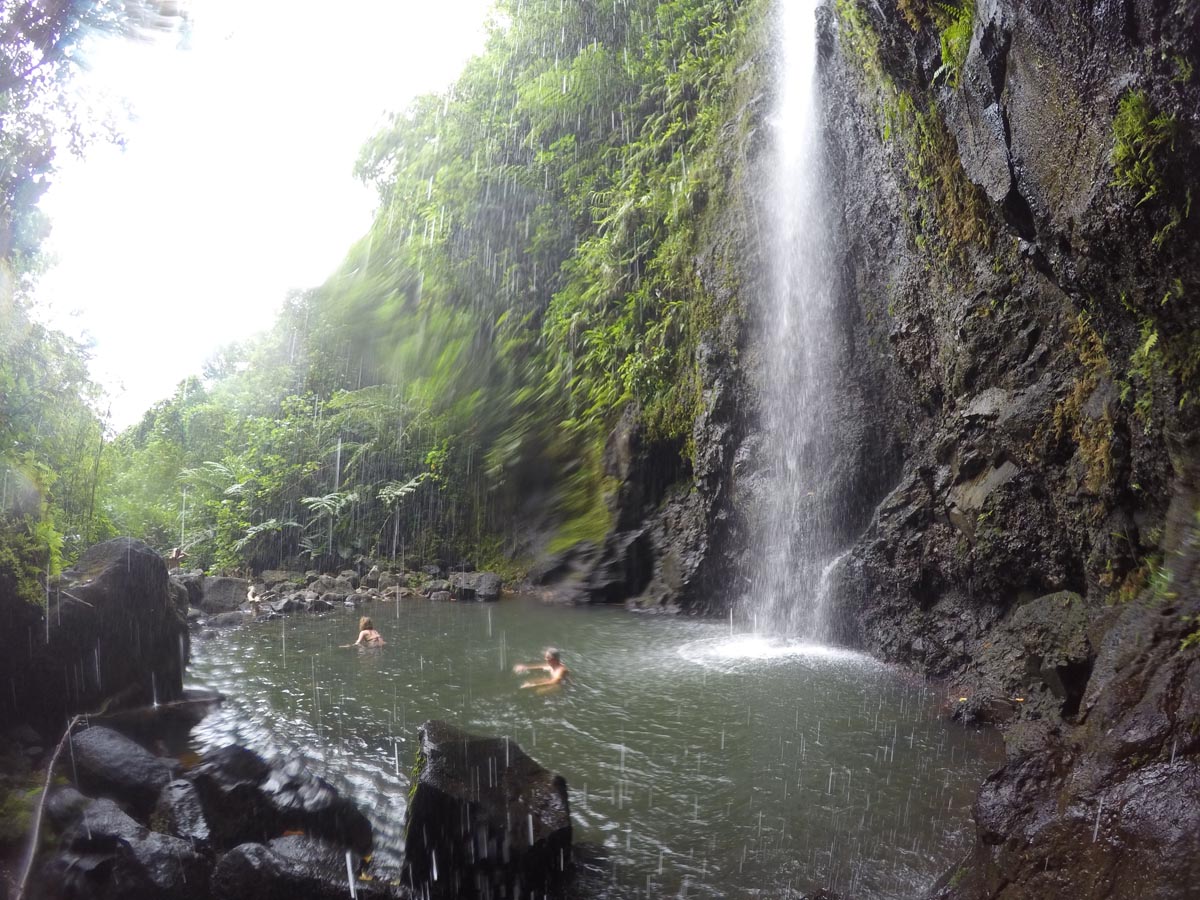
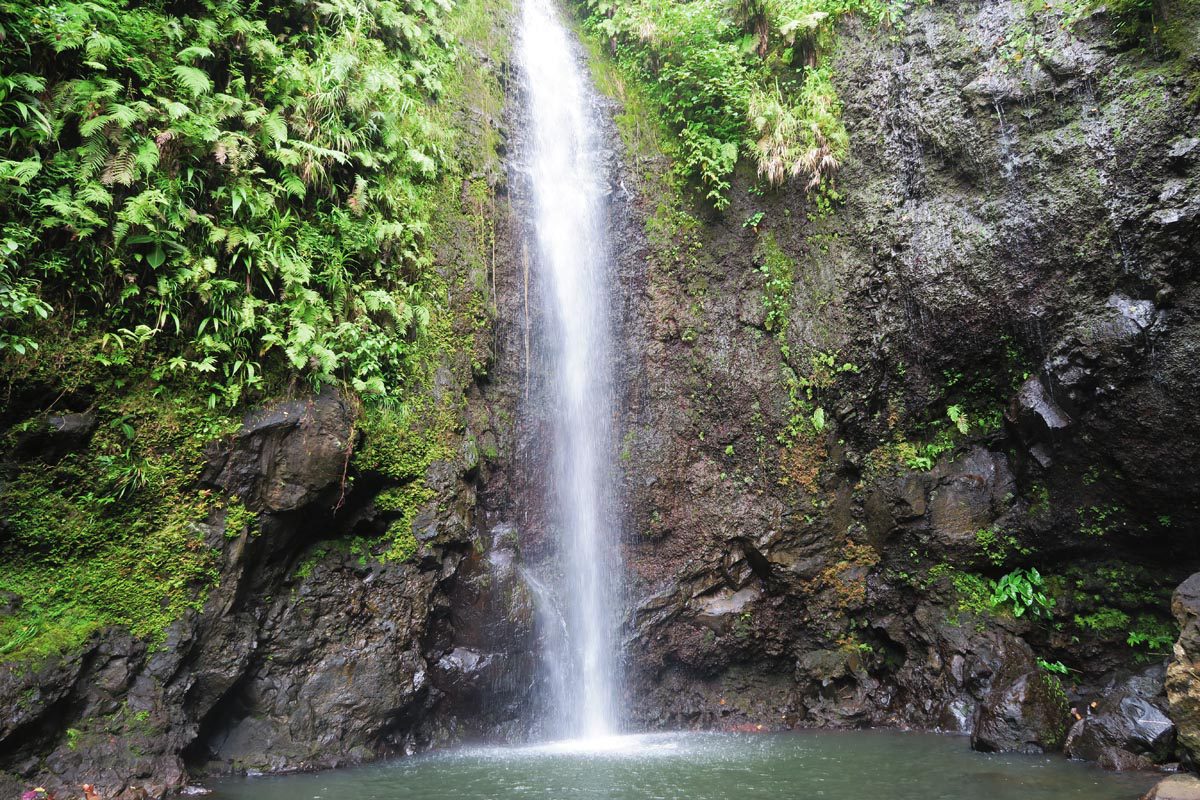
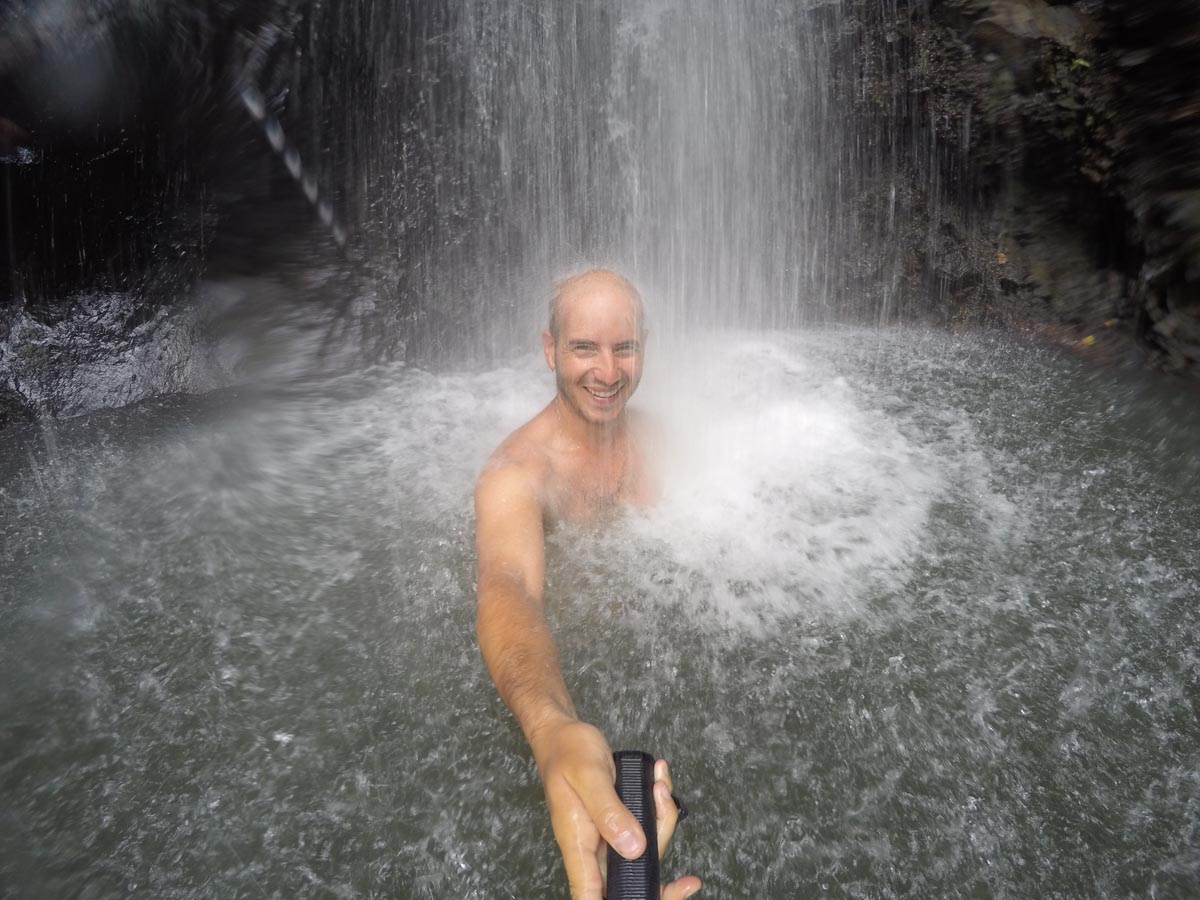
Logistics: only hike this trail with a certified guide. It’s a 5-6 km moderate hike with a few difficult sections involving rope. I left at 9 am and returned at ~ 12:30. Wear waterproof sandals as you’ll be walking through water sometimes, and bring plenty of mosquito repellant or citron-scented monoi oil (they have no mercy in the rainforest). Shorts are OK, but consider a long-sleeved shirt due to the mosquitos and a change of clothes. Bring at least 1L of water, swimming gear, and some snacks.
Day Trip to Tahaa From Raiatea
If you’re not planning to spend a few nights on Tahaa, you can still visit the island on a day trip from Raiatea to Tahaa. This is more than just a “classic” lagoon tour, as you not only stop for some snorkeling in the coral garden but also visit pearl and vanilla farms on land. Lunch is served on a dreamy island (motu) at the edge of the barrier reef, such as Motu Iriru, with its soft white sand and coconut palms galore. For thrills, join a jetski tour of Tahaa’s lagoon, and for a high-end experience, charter a private lagoon tour.
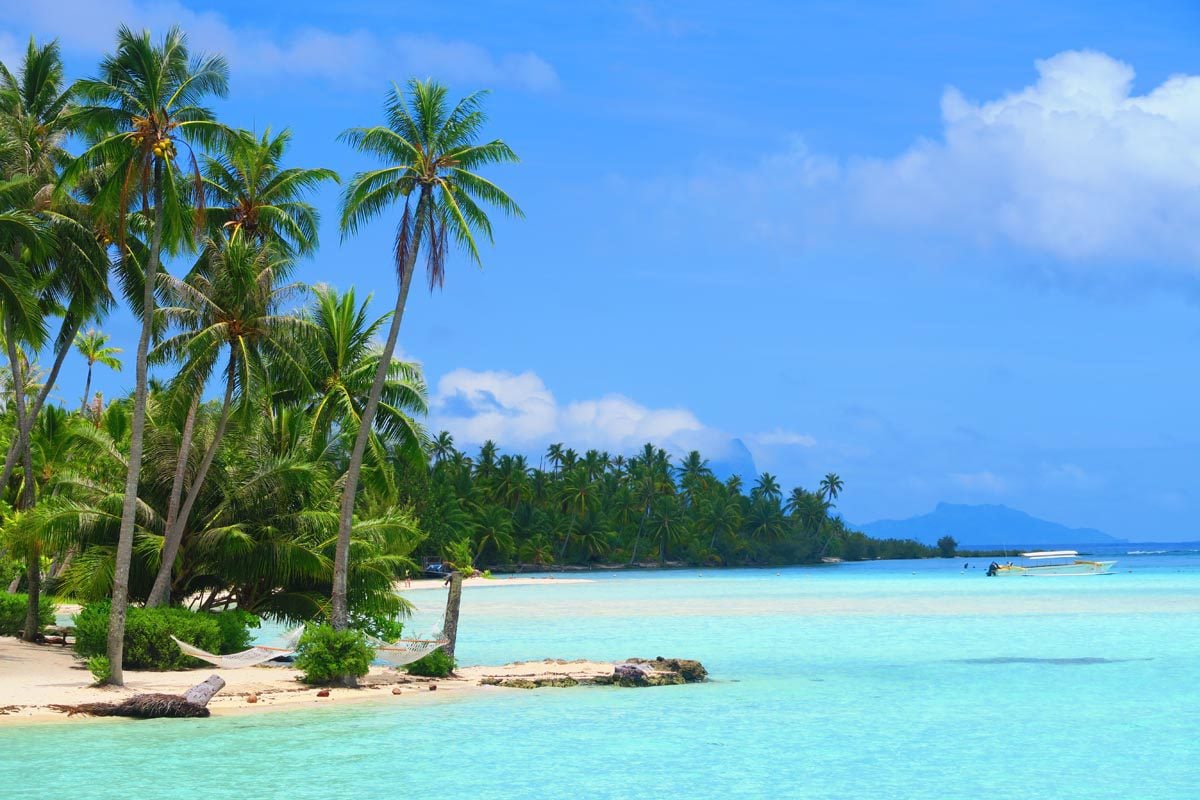
Scenic flights
If commercial domestic flights in French Polynesia are scenic, imagine what you see on dedicated scenic flights. For a unique experience in Raiatea, take to the skies on scenic helicopter flights over Tahaa and Raiatea. And if helicopters aren’t thrilling enough, hop on a microlight for a scenic flight over Tahaa’s motus or, even better, even fly over Bora Bora from Raiatea.
What’s Next?
I hope you’ve found this Raiatea Travel Guide useful. For more information about Raiatea, Tahaa, and French Polynesia, check out these recommended guides.
Tahiti, Tailor Made!
The Islands of Tahiti are among the last places to be colonized by mankind, 118 islands, each with its unique personality.
Get expert advice and assistance with planning your trip to the destination where tropical dreams come true!
